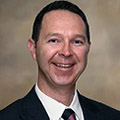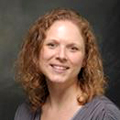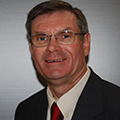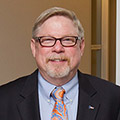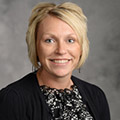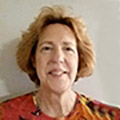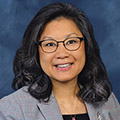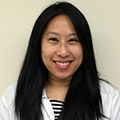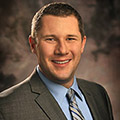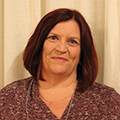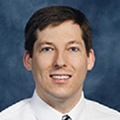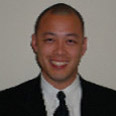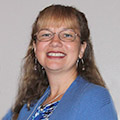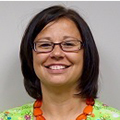Print Entire Issue
KeePosted Info
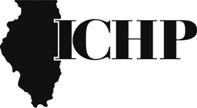
Illinois Council of Health-System Pharmacists
4055 North Perryville Road
Loves Park, IL 61111-8653
Phone: (815) 227-9292
Fax: (815) 227-9294
ichpnet.org
KeePosted
Official News journal of the Illinois Council of Health-System Pharmacists
EDITOR
Jennifer Phillips
ASSISTANT EDITOR
Milena McLaughlin
MANAGING EDITOR
Scott Meyers
ASSISTANT MANAGING EDITOR
Trish Wegner
DESIGN EDITOR
Melissa Dyrdahl
ICHP Staff
EXECUTIVE VICE PRESIDENT
Scott Meyers
VICE PRESIDENT - PROFESSIONAL SERVICES
Trish Wegner
DIRECTOR OF OPERATIONS
Maggie Allen
INFORMATION SPECIALIST
Heidi Sunday
CUSTOMER SERVICE AND
PHARMACY TECH TOPICS™ SPECIALIST
Jo Ann Haley
ACCOUNTANT
Jan Mark
COMMUNICATIONS MANAGER
Melissa Dyrdahl
LEGISLATIVE CONSULTANT
Jim Owen
ICHP's Mission Statement
Advancing Excellence in
Pharmacy
ICHP's Vision Statement
ICHP dedicates itself to
achieving a vision of pharmacy practice where:
·
Pharmacists are
universally recognized as health care professionals and essential providers of
health care services.
·
Pharmacists use their
medication expertise and leadership skills to optimize the medication use
process and patient outcomes.
·
Pharmacy technicians are
trained and PTCB certified to manage the medication distribution process.
ICHP's Goal Statements
·
Raising awareness of the
critical role pharmacists fulfill in optimizing medication therapy and ensuring
medication safety in team-based, patient-centered care.
·
Providing high quality
educational services through innovative continuing pharmacy education and
training programs, and sharing evidence-based best practices.
·
Developing and nurturing
leaders through mentorship, skill development programs, and leadership
opportunities.
·
Working with national
and state legislators and policymakers to create or revise legislation and
regulation critical to pharmacy practice and quality patient care.
·
Urging pharmacy
technician employers to require successful completion of an accredited pharmacy
technician training program and PTCB certification of all pharmacy technicians.
Approved by the ICHP
Board of Directors May 30, 2018.
KeePosted Vision
As an integral publication of the Illinois Council of Health-System
Pharmacists, the KeePosted newsjournal will reflect its
mission and goals. In conjunction with those goals, KeePosted will
provide timely information that meets the changing professional and personal
needs of Illinois pharmacists and technicians, and maintain high publication
standards.
KeePosted is an official publication of, and is copyrighted by, the
Illinois Council of Health-System Pharmacists (ICHP). KeePosted is
published 10 times a year. ICHP members received KeePosted as
a member benefit. All articles published herein represent the opinions of the
authors and do not reflect the policy of the ICHP or the authors’ institutions
unless specified. Advertising inquiries can be directed to ICHP office at the
address listed above. Image disclaimer: The image used in the Pharmacy Tech
Topics™ advertisement is the property of © 2017 Thinkstock, a division of Getty
Images.
Copyright © 2019, Illinois Council of Health-System Pharmacists. All rights
reserved.
KeePosted Info
Directly Speaking
President's Message
Columns
Board of Pharmacy Update
Board of Pharmacy Update
Government Affairs Report
Government Affairs Report
ICHPeople
Hi Tech
Leadership Profile
Leadership Profile
New Practitioners Network
Community Service
Professional Affairs
Educational Affairs
Educational Affairs
Features
2019 Greeting & Seven Ways to get MORE out of your ICHP membership in 2019
ASHP Delegates for 2019-2020
Stay Connected
Free CPE Opportunities
2019 ICHP/MSHP Spring Meeting
National Poison Prevention Week
Pharmacy Legislative Day
College Connection
Chicago State University College of Pharmacy
Midwestern University Chicago College of Pharmacy
Rosalind Franklin University College of Pharmacy
Southern Illinois University Edwardsville School of Pharmacy
University of Illinois at Chicago College of Pharmacy - Rockford
More
Upcoming Events
Welcome New Members
ICHP Pharmacy Action Fund (PAC)
Board of Directors
2018 KeePosted Index
 Directly Speaking
Directly Speaking
The End is in Sight
by Scott A. Meyers, Executive Vice President
I am taking this opportunity to share with many of you a not-so-secret secret that the entire ICHP Board of Directors and staff have been aware of for several months. It will soon be time for me to retire! More accurately, December 31st, 2020 is the date to be exact! So you can see I’ll be hanging around for a little while.
But the reason that this announcement to the membership is important is that there may be someone out there who has quietly thought to themselves or out loud with colleagues, “I think I would like to do something like Scott does someday”. Sounds kind of corny, but that’s actually how I got this job in the first place! Only I shared my secret ambition with a few pharmacist friends at a poker game on a Friday night back in November of 1991. By May of 1992, I was the first ever half-time Executive Director of ICHP! If you want all the details of how it came about, ask me the next time you see me.
This job has been exciting and exhausting, fun and frustrating, rewarding and redundant, but most importantly it has given me a chance to make a difference for pharmacy! And the next Executive Vice President will have even more chances to do the same! Because of this job, I’ve met hundreds - if not thousands - of pharmacists, pharmacy technicians and pharmacy students, many of whom have become good friends. I encourage anyone with any remote interest to e-mail me with questions or concerns and I will be very honest to help you decide whether or not you want to throw your hat into the ring.
Another reason this transition is important is it could be an opportunity to consider a merger with the Illinois Pharmacists Association. A member of the ICHP Board of Directors and a Dean or two of the Colleges of Pharmacy have suggested that we consider that very option. But let me be brutally honest here, both organizations would have to be extremely transparent and more collaborative than I have ever experienced. It’s possible, but it won’t be easy!
Several states have combined their state society and association into one pharmacy organization in the past two decades. Mostly because one or both organizations were financially struggling. For some, it has worked well. For others, it has not been as positive. In fact, if you look in the neighborhood, Wisconsin, Indiana, Iowa and Michigan have all merged, combined or consolidated. Missouri, Kentucky and Minnesota have not. And Kansas has split up back into two separate organizations!
In the late 1990’s, ICHP and IPhA collaborated to hold joint meetings, the Illinois Pharmacy Congresses. The meetings went well, we all played nice in the sandbox, but the programming was limited and they only lasted for four years. Back then, ICHP President Kevin Colgan referred to the Congresses as “slow dancing” to see if the relationship could or would go further.
Since the Congresses, ICHP and IPhA have collaborated to hold joint Illinois Pharmacy Legislative Days which have been very successful even though we have occasionally differed on specific legislative initiatives. We’ve proved we can worked together in a limited capacity but this concept is much, much bigger. It will be interesting to see if either or both organizations’ leaders are willing to bare all (financial and organizational details, that is) to do the work to get this done.
Personally, I have always said that the more voices we have in Springfield and Chicago, the louder we are and the better we are heard. But that only works when we are singing the same song with an agreed upon conductor. But one organization that can’t pick one song to sing is even more helpless in Illinois’ political environment! So Kumbaya isn’t that easy to sing when an organization with divergent agendas has to agree to sing it.
The consideration of the organizational transition will be interesting to say the least but now is the time to consider it before ICHP goes out and hires a new Executive Vice President only to decide shortly thereafter that it is time for a merger. The next two years will be full of thoughtful deliberations and will have a dramatic impact on the future of ICHP and pharmacy in Illinois. I will do my best to keep you all informed, I promise!
120x120.jpg) President's Message
President's Message
From Purpose to Impact
by Noelle Chapman, PharmD, BCPS, FASHP ICHP President
Whether you are a student seeking your path, a resident wondering what your next steps are, a new practitioner trying to figure out your balance, or a seasoned practitioner drumming up your resilience, we all face one question at some time or another: What am I doing and why?? Purpose is a funny thing. There are so many aspects to the experiences we have and who we are that how do you determine a singular purpose?
As individuals, this determination is difficult enough. As the nerdy pharmacist that I am, I have taken this completely existential thought and reduced it to a simple equation:
Who you are + What you believe = Your purpose
You have to be willing to be self-reflective and honest but also have a pulse on your passion - which can change over time! What is potentially even more difficult is translating multiple individual purposes into one common group purpose. As members of this organization we have all connected our individual path to ICHP’s mission of “Advancing Excellence in Pharmacy” either intentionally or inadvertently. Recently, we had the ICHP Leadership Retreat in lovely Zion, Illinois, and we used the concept of personal and group purpose to drive our goals to make an impact! After spending a little time defining who we are individually, we discussed how we fit together within ICHP. We asked questions such as:
Why did you chose pharmacy as a profession?
Some of us loved math and science and chemistry. Others were drawn to pharmacy because of patient care or a way to balance life. Yet others were intrigued by the unknown possibilities within the profession.
What first drew you to ICHP and why do you stay involved?
Networking, acceptance and understanding, personal outreach, as well as the opportunity to give back and make a difference were some reasons identified.
What does ICHP do/provide that helps feed your purpose?
Answers included educational opportunities, possible solutions/innovations to problems, advocacy, and helping patients by making the profession and health care better.
I’m hoping that you can identify with some of the answers above in your own journey. What was most meaningful in my opinion was that regardless of where we all came from, ICHP was filling a similar role for us all.
We are all a blend of thinkers and doers. I’m sure you can easily identify the disadvantages of being either by thinking of the extremes (e.g., people who can’t execute on anything because they overthink every step or those who plow ahead without thought or regard), but the reality is that we need a good blend of both to make sure we are making the right choices. We need to be empathetic and take the next steps towards where we want to go. Therefore, after a couple of nice warm and fuzzy thinking sessions, we needed to start kicking into action by determining the top three priorities for ICHP for 2019. There are many wonderful activities that we are involved in and many opportunities that get presented to us as an organization, but the reality is we can’t do and be everything. I call this the Nemo principle: to achieve anything of significance we all need to be swimming in the same direction! So get your flippers on because the group of leaders present at the retreat compiled the following three goals for 2019:
Sustainability: Ensure long-term financial and operational stability through succession planning of staff and officers, while growing membership, products, and services.
Advocacy: Lead the development of public policy related to pharmacy that allows pharmacists and pharmacy technicians to work at the top of their education and training.
Engagement: Educate and energize our members, the public, and other health care professionals to advance the practice of pharmacy.
In order to make these goals SMART we identified tactics for each which included (but was not limited to) developing a process for succession planning for each board member, division/committee/network chair and ICHP staff member; revising the Pharmacy Practice Act and advocating for provider status; evaluating member needs; and increasing outreach to other health care professionals and the public, respectively.
There are still so many things we can and need to do to truly advance pharmacy excellence. And despite the many brilliant minds at the leadership retreat and in our committees, we need more. We need everyone swimming in the same direction. So let me ask you…
Why are YOU an ICHP member?
How does this connect back to YOUR personal purpose?
What can YOU do to achieve these goals?
What can YOU do to advance excellence in pharmacy practice?
Columns
Board of Pharmacy Update
Highlights of the November 2018 Meeting
by Scott A. Meyers, Executive Vice President
The November 13, 2018 Board of Pharmacy Meeting was held at the Michael A. Bilandic Building, 160 N. LaSalle Street in downtown Chicago. These are the highlights of that meeting.
Board Elections - The Board elected Al Carter as its 2019 Chair and Denise Scarpelli as its 2019 Vice Chair.
Remediation Resources - The Board was provided an update on discussion regarding remediation programs for recent graduates who have failed the NAPLEX or MPJE three times. The Colleges of Pharmacy at UIC, Midwestern, Rosalind Franklin, and Roosevelt have indicated an interest in providing remediation programs or opening up existing programs to students from outside their colleges. More discussions will occur and updates will be provided as the situation clarifies. Approximately 15-20 students are required to complete remediation annually.
2018 District IV Meeting - The Meeting was held in Grand Rapids, MI and hosted by Ferris State University College of Pharmacy and the Michigan Board of Pharmacy on November 7-9. Several Board members were in attendance. The focus of educational programming was on patient safety, interprofessional education, and staff competency assessment. The next three District IV meeting locations have been set with 2019 in Indiana, 2020 in Wisconsin and 2021 in Illinois.
Department Update - Compounding rules have been approved and are now in effect. They may be found in the November 9th issue of the Illinois Register beginning on page 19976. In these new rules, compliance with USP 797 and 795 is now required, however compliance with USP 800 is currently exempted. No other rule changes have been worked on at this time.
Legislative Update - The Board was provided a brief legislative update by Scott Meyers, ICHP Executive Vice President. The fall Veto Session is scheduled to take place during November and two new bills related to pharmacy have been introduced. However, neither bill moved at all during the Veto Session.
Board of Pharmacy Update
Highlights of the January 2019 Meeting
by Scott A. Meyers, Executive Vice President
The January 8th Meeting of the Board of Pharmacy was held at the Michael A. Bilandic Building, 160 N. LaSalle Street in downtown Chicago. These are the highlights of that meeting.
2020 Fiscal Year Board Meeting Dates - The 2020 fiscal year for Illinois begins on July 1, 2019 with the Board establishing their fiscal year meeting dates in January of the prior fiscal year. The following dates have been selected for future Board of Pharmacy meetings for fiscal year 2020:
July 9, 2019 - Chicago
September 10, 2019 - Chicago
November 12, 2019 - Chicago
January 14, 2020 - Chicago
March 10, 2020 - Chicago
May 11, 2020 - Springfield
Meetings are open to the public and pharmacists, pharmacy technicians, and pharmacy students are encouraged to attend.
Remedial Training for NAPLEX and MPJE Failure - The Board continued their discussion of available programs for remedial training for new graduates who have failed NAPLEX and/or the MPJE three times. Illinois law requires those graduates in that situation to complete a remedial training program of at least 30 hours before they may sit again for the portions of either exam they have not passed. Details of the requirement may be found in the Pharmacy Practice Rules, Section 1330.330 c) and e). Currently programming available outside of several of the Illinois colleges of pharmacy review courses for graduating candidates can be found on the Internet but no specific programs have been reviewed or approved by the Board and Department. A couple of the programs discussed were
RxPrep.com and
PassNAPLEXnow.com.
NABP Interactive Forum - Al Carter, Board Chair, reported that he participated in the Annual Forum in December which brings together representatives from all 50 State Boards of Pharmacy to discuss new trends in practice. The following trend topics were discussed:
- State mandating pharmacist and pharmacy technician use of NABP’s CPE Monitor for logging continuing education credits.
- Current data from the Foreign Pharmacy Graduate Equivalency Examination.
- Development of a universally accepted definition of standards of care for pharmacists.
- Establishing one-click access to NABP’s shared State PMPs.
Task Force Update - Chairman Carter discussed previous discussions of the Collaborative Pharmaceutical Task Force, which have been reported in previous issues of the KeePosted. He did encourage meeting attendees to spread the word that all Task Force meetings are open to the public and practicing frontline pharmacists and technicians should consider attending.
Department Update - Several areas in the Pharmacy Practice Act Rules need to be updated and the Department will begin working on them shortly. Included in those updates will be the new rules regarding certified pharmacy technician continuing education. It is projected that the implementation of the requirement for 20 hours of CE credit will be in 2021 if the rules are completed and approved in 2019.
Legislative Update - This meeting’s legislative update was provided by Garth Reynolds, IPhA Executive Director. Garth discussed bills passed by last spring’s General Assembly and signed by the Governor. As mentioned in earlier issues of the KeePosted, SB3170 or Public Act 100-0804 now allows non-controlled substance prescriptions to be written to be filled for up to 15 months instead of one-year. This went into effect for new prescriptions on January 1, 2019. Prescribers may still write for a shorter duration, if desired. Several other bills were discussed and have all been reviewed in previous Government Affairs Reports in the KeePosted.
Public Comment Period - Garth Reynolds announced that IPhA has made a policy-shift and now supports pharmacist participation in the distribution of medical and recreational marijuana.
Next Meeting - The next meeting of the Board is set for March 12th at 10:30 am in downtown Chicago. This is a change from previous years when the March Meeting was normally held in Springfield. Instead the May meeting of the Board will move to Springfield if rooms may be found to accommodate the switch. Check the IDFPR Website
www.idfpr.com for exact location. These meetings are open to the public and pharmacists, pharmacy technicians and pharmacy students are encouraged
to attend.
Government Affairs Report
The Task Force Continues Deliberations in November and December
by Jim Owen and Scott Meyers
Before we begin with our update from the November 2018 Collaborative Pharmaceutical Task Force, let’s start with a quick mention of what happened, or actually didn’t happen during the fall 2018 Veto Session. The General Assembly overrode several of Governor Rauner’s vetoes but the one ICHP pushed for, HB4096, never moved. In addition, new legislation was introduced that would require pharmacies to report controlled substance prescriptions on the day they were filled (HB5499) and another bill that would regulate pharmacy benefit managers (SB3642). Neither bill moved. Both new bills died when the 101st General Assembly was sworn in in January.
Now for the truly interesting and slowly progressing work of the Collaborative Pharmaceutical Task Force (henceforth referred to as the Task Force). At its November meeting, the Task Force did agree to recommend that all pharmacies establish, if they have not already, a Continuing Quality Improvement Program. The following is the recommendation:
Continuous Quality Improvement Program
Each pharmacy shall implement a program for continuous quality improvement, for the purpose of detecting, documenting, assessing, and preventing Quality-Related Events (QREs). At a minimum, a CQI Program shall include provisions to:
- (i) Designate an individual or individuals responsible for implementing, maintaining, and monitoring the CQI Program, which is managed in accordance with written policies and procedures maintained in the pharmacy and in an immediately retrievable form;
- (ii) Initiate documentation of QREs as soon as possible; but no more than seven days, after determining their occurrence;
- (iii) Analyze data collected in response to QREs to assess causes and any contributing factors;
- (iv) Use the findings of the analysis to formulate an appropriate response and develop pharmacy systems and workflow processes designed to prevent QREs and increase good outcomes for patients;
- (v) Provide ongoing CQI education at least annually to all pharmacy personnel.
Any pharmacy that contracts with a federally-listed Patient Safety Organization (PSO) and has developed and implemented a Patient Safety Evaluation System in order to advance the goal of continuous quality improvement under the Patient Safety and Quality Improvement Act of 2005 (P.L. 109-41) shall be deemed in compliance with this Section.
All information, communications, data, reports deliberations, and analyses of any pharmacy which satisfies the CQI Program requirements set forth that have the potential to improve quality and/or patient safety and are maintained as component of a pharmacy CQI Program are privileged and confidential and shall not be subject to discovery or admissible into evidence in a state or federal proceeding nor subject to a judicial subpoena.
These protections shall not prevent the review of a pharmacy’s CQI Program materials, policies, procedures, and corrective actions taken pursuant to their Program. In addition, the department may collect information of any adverse event or error that is maintained outside of the PSO’s Patient Safety Evaluation System or outside of the CQI Program in response to a subpoena. The disclosure of documents or information under the subpoena does not constitute a waiver of the privilege or confidentiality protections associated with a CQI Program.
In addition to the previous recommendation, the Task Force discussed possibly incorporating a reference to the Illinois Whistleblower Act 740ILCS174 in the Pharmacy Practice Act to better protect pharmacists, pharmacy technicians or pharmacy students who report what they believe to be violations of the Practice Act or unsafe practices to State agencies. There was also discussion (but no resolution) regarding whether the required meal break in the One Day of Rest in Seven Act applied to pharmacists. More discussion on that issue is scheduled for December.
At the December 11th meeting of the Task Force, a member of the Department of Labor made a presentation regarding meal breaks and overtime. Unfortunately, more questions were identified than were answered so this topic will be discussed in January. There was general agreement that it appears currently that pharmacists are entitled to at least a 20-minute meal break within the first five hours of their shift if they work at least 7½ hours in that shift. In addition, there also again appeared to be agreement that pharmacy personnel should be protected by the Whistleblower Act. What remains unclear is whether pharmacists are considered exempt employees with regard to overtime. The Task Force will create a list of questions and request written answers from the General Counsel from the Department of Labor.
Government Affairs Report
Good Bye Good Friend and Task Force Deliberations
by Jim Owen and Scott A. Meyers
Since 2001, ICHP has enjoyed a growing legislative and regulatory presence in Springfield and Chicago because of the efforts of our legislative consultant (licensed lobbyist in Illinois), Jim Owen! That era is sadly coming to an end as Jim has begun to plan his official retirement from the Capitol scene. That is, as soon as he can help us find his replacement. In these 18 short years (at least it seems short to me!) we have learned a lot, done a lot, and hopefully inspired a lot of you to get more involved in legislative and regulatory issues in Illinois and in the U.S. Jim has been a great teacher, coach and trailblazer for ICHP and he will be sorely missed.
While Jim has not necessarily written a lot of these columns over those 18 years, everything you have read here has had his signature or footprint on it. He has taken ICHP from “Who are you guys?” status before he got here, to “Oh yeah, you’re the hospital guys” and finally now to “What’s ICHP’s position on this legislation?” from most of the legislators and many of the other lobbyists! Our relationship with the Illinois Retail Merchants Association (the pharmacy chains’ voice in Springfield) has never been better. Good bye, good friend and thank you, Jim, for all you’ve done!
Another quick note before we get to the Task Force deliberations - in case you didn’t read the Board of Pharmacy update for January yet - one bill from last spring that seems to need highlighting again is SB3170 or Public Act 100-0804. This bill was signed by Governor Rauner back in August, highlighted in a couple of earlier KeePosteds and is now in effect in Illinois. The bill is simple and straightforward and allows non-controlled substances to be prescribed for up to 15 months beginning on January 1, 2019. This applies only to new prescriptions written after the first of the year. Send the word to your outpatient pharmacies if they haven’t already heard or read about it.
Task Force Deliberations – At the January 8th meeting of the Collaborative Pharmaceutical Task Force, the discussions began with a review of several questions that will be sent to the Director of General Counsel at the Department of Labor for clarification of existing labor laws and how they may or may not apply to pharmacists and pharmacy technicians. These questions specifically involve mandatory meal breaks, mandatory shift lengths and frequencies and overtime compensation described in the One Day of Rest in Seven Act. A list of 10 questions were reviewed and revised by the Task Force.
The second topic of discussion related to revisions in the grounds for discipline in the Act and Rules. The Task Force agreed on the following recommendations as grounds for discipline:
- Asking or requiring pharmacists to advertise or solicit services offered by the pharmacy or store if they jeopardize the health, safety, or welfare of patients.
- Failure to provide a working environment for all pharmacy personnel that protects the health, safety, and welfare of patients. This includes providing insufficient personnel to prevent fatigue, distraction, or other conditions that interfere with a pharmacist’s ability to practice with competency and safety.
- Introducing external factors such as productivity or production quotas or other programs to the extent that they interfere with the ability to provide appropriate professional services to the public.
Finally, the Task Force discussed adding text to the grounds for discipline that reminded the pharmacy owner and pharmacist-in-charge that employees who report violations of Illinois or federal law to the appropriate agency are protected under the Illinois Whistleblowers Act. There is some concern that this language may not meet the intent desired, so Department General Counsel will discuss and return with an opinion.
The third topic that was briefly discussed related to what tasks pharmacy technicians may carry out when the pharmacist is out of the office on a break. The Task Force agreed that receiving new prescriptions and refill orders, filling prescriptions to await verification by the pharmacist, and dispensing pharmacist-verified refill prescriptions that the pharmacist has judged to not require further counseling should be permitted. If the patient or care-giver has questions related to refill prescriptions, the technician should obtain a telephone number where the patient or caregiver may be reached as soon as it is convenient after the pharmacist returns from break.
The next meeting of the Task Force will take place at 1:30 pm on Wednesday, February 13th in both Springfield and Chicago.
Followed by meetings on:
◆March 12, 2019
◆May 14, 2019
◆June 11, 2019
◆July 9, 2019
◆August 13, 2019
Frontline pharmacists and pharmacy technicians are encouraged to attend to provide real-life experiences when discussing specific topics. The next meeting will discuss expanding the roles of pharmacy technicians. Meeting location details will be posted on the Department website at
https://www.idfpr.com/profs/Boards/PharmTaskForce.asp.
ICHPeople
A big round of applause to our fellow ICHP Members! We celebrate you!
Congratulations to ICHP Member Sharon Karina!
Sharon was invited to co-author a chapter in ASHP's Letters From Women in Pharmacy: Stories on Integrating Life and Career which was published December 2018.
Sharon also took part in a book signing at the 2018 ASHP Midyear Clinical Meeting in Anaheim, CA.
We want to hear about all the great things going on in your life! New baby? Get married? Get Promoted? Win an award? Tell us all about so we can share your good news each quarter in the ICHPeople section of KeePosted™. ICHPeople Submissions can be sent to ICHP Communications Manager Melissa Dyrdahl at: melissad@ichpnet.org. Don't forget to attach a photo!
Hi Tech
What Makes a Great Tech?
by Kristine VanKuiken, CPhT ICHP Technician Representative
Hi Techs! I hope you all had a wonderful holiday season!
As we begin a new year, I thought about how many people make New Year’s resolutions but do not keep them throughout the year. I know that personally I am very bad at this and never seem to make it past March! So for 2019, I have decided to concentrate on how we as pharmacy technicians can elevate our profession and make this a career and not just a job!
As my little cartoon above points out, a pharmacy technician plays so many different roles. But what qualities does a pharmacy tech need to be highly effective? I recently learned about this and it spoke to me personally . I’m sure you all can relate.
TEAM PLAYER- Technicians often wear multiple hats every day and need to know when to jump in and help to see the big picture. I like the term “global awareness”. A part of that is being able to help others learn which in turn helps the team overall.
KNOWLEDGE- Great pharmacy technicians are committed to learning about many different areas. Some of these include health plan knowledge, drug knowledge and software knowledge. Knowing your limits, or the limits of the law, is also a part of learning. Knowing when to get a pharmacist involved is key. Remember….KNOWLEDGE IS POWER!
COMMUNICATION- Great technicians are able to clearly articulate to both patients and co-workers in a language and manner that is clear and respectful. Many patients do not understand some of the terms that we use in pharmacy. Telling Ms. Smith that her drug needs a P.A. means nothing to her. But being able to explain what that means in a manner that she can understand is vital for her ability to know what is going on. When speaking with a co-worker, it is always valuable to be able to put personal issues aside and remember that they have feelings, too. Leaving a clear note and being polite goes a long way to making a comfortable workplace for everyone.
ADAPTABILITY- Great technicians find a way to adapt to the various working preferences of everyone in the pharmacy. Each person has their own particular way of doing things. Some more than others! Technicians sometimes have to endure some very odd requests, but they do what is necessary to keep things moving smoothly and efficiently.
ACCURACY- Mistakes happen and everyone makes them. But great technicians are highly aware of how important accuracy is in the pharmacy and they take it very seriously. They are concerned about details, take enough time to do things right and do not guess or hope that someone else will fix their mistakes.
FOCUS- Great technicians recognize distractions and stay focused. They remain calm and do what needs to get done while remaining sharp and organized. They manage pressure and do not take it out on coworkers or patients.
PHARMACIST AWARENESS- Great technicians are mindful of times when their pharmacist may need help and do not hesitate to jump in and assist. There are parts of the filling and counseling process that can only be performed by a pharmacist, and if they are doing other tasks it can back up the whole workflow. By being aware of those situations and taking the lead, the technician helps the workflow continue to move forward in a timely manner.
I am sure that most technicians possess the majority of these qualities and utilize them to the fullest. However, I think that it is always helpful to remind each other of what makes us valuable to our patients as well as our pharmacists.
SO…be a TEAM PLAYER, always gain more KNOWLEDGE, COMMUNICATE effectively with patients and coworkers, be ADAPTABLE, ACCURATE, FOCUSED and AWARE!
I would love to hear any of your ideas and experiences about this or any other subject. Please feel free to email me (
kvankk@uic.edu) or call me (312-355-2035) anytime.
Leadership Profile
Membership Spotlight: Julie Downen, PharmD, BCPS, BCIDP, CLSSBB
What is your leadership position within ICHP?
I am the Central Region Director – Elect. In this role, I will be working with affiliate presidents and champions in the region to address membership and activity needs.
Describe your practice site.
I am the Antimicrobial Stewardship Coordinator at Memorial Medical Center in Springfield, IL. I coordinate a multi-disciplinary committee and initiatives to optimize and improve antimicrobials use within the hospital.
How have your applied what you have learned from ICHP to your work?
One of my favorite sessions was at the Spring 2018 Meeting, “How to Pivot your Way Through Data.” While I had some experience and very limited knowledge, this session really helped me better understand pivot tables. In my work with Antimicrobial Stewardship as well and quality projects, I found this to help me be more efficient and improve my limited skills that I had using pivot tables. Just last week, I was asked to summarize some data and using a pivot table, I was quickly able to put together some graphs and materials needed.
Describe a time when you helped fix a problem at work.
Recently, I have done a significant amount of work implementing new recommendations for antimicrobial use. This required review of the current practice, meeting with key stakeholders and physicians to discuss alternatives, and then presenting at various committees and groups for approval. This has required follow up after implementation, but overall has been a positive change.
Why is ICHP valuable to you?
It provides excellent educational, networking and leadership opportunities.
Tell us about the first time you joined ICHP.
My initial involvement in ICHP began as attending monthly CE presentations for the Sangamiss Chapter. As I went to more meetings and attended the state-wide Spring meetings, I gained more interest in the organization and wanted to be more involved through various positions, such as President of the Sangamiss Chapter and the Marketing Affairs Division.
Is there anyone you would like to thank for making you who you are today in your career?
When I was in pharmacy school, Ken Peterson helped me get my first job in hospital pharmacy at Memorial Medical Center as a pharmacy technician. As it turns out, when I graduated pharmacy school, I returned to Memorial Medical Center as a pharmacist and have been there for almost 15 years, which has given me many opportunities for learning and growth.
What advice do you have for a student?
Take advantage of each of your rotations during your final year of pharmacy school. While some of them may not be what you wanted, or may not be an area you like, the more interest you take in the rotation, the more you will learn from them. They may also open doors for future prospects or simply be a great networking opportunity.
Describe any special interests or hobbies outside of work.
Yoga, knitting, reading.
What is your favorite place to vacation?
This is a tough one, but for warm weather the Florida Keys. For outdoor adventures, such as hiking and skiing, it’s Colorado (Estes Park and Breckenridge).
Leadership Profile
Member Spotlight: Natalie Tucker, PharmD, BCPS, BCIDP
What is your leadership position within ICHP?
I am Chair-Elect of the New Practitioners Network
Describe your practice site.
I work at HSHS St. John’s Hospital in Springfield, IL as the Antimicrobial Stewardship Pharmacist and PGY2 ID Residency Program Director.
Describe a time when you made a difference.
We recently had a pediatric patient with CRE Enterobacter aerogenes bacteremia and acute kidney injury. I worked with our pediatric infectious diseases physicians and PICU pharmacists to research dosing for the new beta-lactam/beta-lactamase inhibitors so we could avoid nephrotoxic drugs like aminoglycosides and polymyxins. I ended up ordering ceftazidime/avibactam as this agent had the most data for pediatric use and the organism was susceptible to it.
What pharmacy issues keep you up at night?
ANTIBIOTIC RESISTANCE! One of the reasons I work hard at my job is so that I don’t die from a simple E. coli UTI before I turn 50.
Why is ICHP valuable to you?
ICHP is valuable because of the many CE opportunities in various clinical areas available throughout the year. I also really enjoy the networking with local and statewide pharmacists. This allows me to learn more about pharmacy practice as well as meet people who can serve as additional resources.
Tell us about the first time you joined ICHP.
I first joined ICHP as a PGY2 ID resident at St. John’s Hospital, because I wanted to attend the ICHP Annual Meeting. That year I also gave my first CE presentation to the Sangamiss Society. I have since given a second CE for the Sangamiss Society as well as presented on MRSA nasal swabs at an ICHP Spring meeting.
Is there anyone you would like to thank for making you who you are today in your career?
Special thanks to Scott Bergman and Brandi Strader for making me who I am today in my career. Both were mentors to me during my PGY2 residency at St. John’s Hospital. Scott continues to answer my emails when I have unique clinical questions, while Brandi continues to help guide me in the right direction with implementing policies and protocols.
What advice do you have for a student?
Think about what your perfect job in pharmacy looks like. What skills do you want to use? What clinical areas interest you? What types of people you want to work with? Ask your mentors and preceptors what it takes to get there and do it!
Describe any special interests or hobbies outside of work.
Traveling, baking, weight lifting.
What is your favorite restaurant or food?
Cookie dough.
New Practitioners Network
Land it! Securing the First Step for a New Clinical Pharmacist's Career Path
by Mary Lacy, PharmD, BCPS - Pharmacy Clinical Coordinator, AMITA Saint Joseph Hospital and Bryan C. McCarthy Jr., PharmD, MS, MJ, BCPS - Director, Adult Inpatient Pharmacy Services, The University of Chicago Medicine
After years of pharmacy school and residency training, the light at the end of the tunnel is visible and fast approaching! It is time to land your first official job. As exciting as it sounds, securing this job offer can be intimidating and can leave many feeling anxious and overwhelmed. Consider the following advice to maximize your success potential.
Involve a mentor. It is crucial to involve a mentor in your job search. Great people to have in your “job-search corner” are those you have built a strong relationship with, including residency program directors (RPDs), preceptors, or former/current bosses. Consider mentors who are familiar with the geographic career markets where you are applying. Not all job markets have the same progressive style of pharmacy.
Start early. Finding a position can be all about timing. Unlike the residency match process, organizations are usually looking to hire (the right) pharmacist who can start relatively soon, if not as soon as possible! Do not fall prey to thinking that you should wait until April or May to start your
job search. If it is only January and you see a great job posted, go ahead and apply. They could decide you are the best candidate after an onsite interview and offer the job knowing that you cannot start for several months. No position posted? Consider sending your CV to the director of pharmacy with a note requesting consideration for future opportunities.
Be prepared. Ensure that your CV is sharp, up-to-date, well-detailed, and error-free. If you do not see any errors, look again. Request trusted mentors and colleagues to review your application and requisite documents before submitting. If possible, share what position you are seeking beforehand. They may advise highlighting certain experiences that will set you apart from other candidates that you may have overlooked. Your CV is arguably the most important part of your application. Recruiters and hiring managers sometimes spend just a few seconds on a CV before deciding whether a candidate is a good fit. A key tip to contribute to success is to ask your mentor for their first impression as well as for advice for where improvements may be made.
Most job applications give you the option of including additional information, such as a letter of intent. While a letter of intent is not often required, voluntarily providing one can help you stand out from other candidates. If you choose to have a letter of intent, put in the time and effort to perfect it.
Ace the interview. From pharmacy school interviews to residency recruitment, you are more prepared than you may think! Search online and ask within your network what the most common interview questions are for a specific role. Prepare answers to these interview questions and practice saying them aloud. However, avoid sounding rehearsed! Being natural in interview conversation and question answering will have a positive impact.
Perform thorough research on the position, department, organization, and every person on the interview itinerary. Knowing an interviewer’s work history and/or research experience can facilitate more professional connections and points of conversation. Ask the recruiter or hiring manager who you will be interviewing with if this information has not already been provided.
You may have to give a presentation to a panel of interviewers, or alternatively, you may not have to have anything prepared at all. Iron out these interview details before your interview date. A good rule to observe when answering interview questions is to listen carefully, think how each question is related to the position (and then how best to answer), then incorporate one to two specific experiences or accomplishments in your answer.
Consider requesting the contact information of all interviewers before you leave. Try to send your thank you notes within 24 hours, while your face is still fresh in the interviewers’ minds. There are varying opinions on whether to email or send handwritten thank you notes. Sending a thank you via email will ensure the interviewers receive the note before hiring decisions are made, which may not be the case with handwritten endeavors.
Understand setbacks. If you do not end up getting the job, remember that it is not the end of the world. If you started your job search early, you likely still have a few more months to find a position. Certainly, we all have areas in which we can improve, but do not let a job rejection destroy your confidence.
As a new practitioner, it is not uncommon to lose out on a position to someone with more experience. This is inevitable, and it is okay. Be respectful and professional in all your interactions with the recruiter or hiring manager, whether or not you get the job. Thank them for the opportunity to learn more about the organization. Ask them to keep you in mind for future job openings and to stay in touch. You never know, they may call you in a few months when another position opens.
Do not be afraid to negotiate. If they do offer you the job, congratulations! Typically you will receive the preliminary job offer via phone rather than by email. Show your excitement and genuinely thank them for the opportunity. Unlike matching with a residency program, details of the job offer may not be set in stone. Often it is not expected that you accept the job offer immediately. However, be prepared to give the recruiter or hiring manager an accurate timeline in which you will accept or decline that is no more than 2 weeks. Be transparent and specific if you require even more time, such as in instances when you have other desirable interviews elsewhere scheduled that you wish to keep.
In conclusion. Searching for your first job is exciting. Seek guidance from a mentor, define your priorities, and start early. Be patient with yourself and with the process. Remember, there is not an end date to your first job like there was in residency or pharmacy school. Find opportunities that motivate you and make you excited to come to work. It is not always about finding a job. Rather, it is about finding the right job or an ideal stepping stone that gets you to where you want to be.
Community Service
ICHP Volunteers at AHA Heart Walk
by aleen Haidar, PharmD Candidate 2020, Chicago State University College of Pharmacy, Student member of ICHP and Tamkeen Quraishi Abreu, PharmD, BCPS, Clinical Pediatric Pharmacist, Ann & Robert H. Lurie Children's Hospital of Chicago, ICHP member
On Saturday, September 22, 2018, ICHP pharmacists and pharmacy students participated in the Metro Chicago American Heart Association Heart Walk. While coming together for a great cause, we were able to network and develop potential mentoring relationships. It was powerful to see survivors of heart disease and those who are directly impacted and who will benefit from our dedication. Hopefully the goal of reducing heart disease and stroke by 2020 will be achieved even sooner with the efforts from the walks. ICHP has been committed to the pharmacy profession and the community for over 50 years and we hope to continue to provide opportunities to impact our community and advance our profession.
Professional Affairs
Best Practice Award - Call for entries!
|
|
|
Past
winners include:
2018
Zahra Khudeira,
PharmD, MA, BCPS, CPPS; Ashleigh Swearingen, MD; Carlos Sandoval,
MD; Lelas Shamaileh, P4; Noha Mohamed, P4; Serene Abuzir, P4;
Alexander Frank, MS
Use of
Multimodal Analgesia in Women Post-Cesarean Section: From
Innovation to Bedside
2017
Sandra
M. Salverson, Pharm.D., BCPS and Jerry Storm, RPh
Implementation
of Integrated Telepharmacy Services Achieve a Health-System
Standard of Pharmacy Care
2016
Maya
Beganovic, PharmD and Sarah M. Wieczorkiewicz, PharmD, BCPS
"MALDI-TOF
alone versus MALDI-TOF combined with real-time antimicrobial
stewardship interventions on time to optimal therapy in patients
with positive blood cultures"
2015
Kuntal
Patel, Pharm.D., Pavel Prusakov, and Heather Vaule
"Osteopenia
of Prematurity (aka Better Bones for Babies)"
2014
Arti
Phatak, Pharm.D.; Brooke Ward, Pharm.D., BCPS; Rachael Prusi,
Pharm.D.; Elizabeth Vetter, Pharm.D.; Michael Postelnick, BS Pharm,
BCPS (AQ Infectious Diseases); and Noelle Chapman, Pharm.D., BCPS
"Impact
of Pharmacist Involvement in the Transitional Care of High-Risk
Patients through Medication Reconciliation, Medication Education,
and Post-Discharge Callbacks"
View 2008 -
2013 Winners at ichpnet.org
The 2017
& 2018 Best Practice Winners Available for CPE!
Click here to learn
how ICHP members can obtain free CPE credit.
|
|
|
Online entry form
Submission
deadline: July 1, 2019
The objective of the Best Practice Award program is
to encourage the development of innovative or creative pharmacy
practice programs or innovative approaches to existing pharmacy
practice challenges in health systems within the state of Illinois.
Applicants will be judged on their descriptions of programs and
practices employed in their health system based on the following
criteria:
- Innovativeness /
originality
- Contribution to
improving patient care
- Contribution to
institution and pharmacy practice
- Scope of project
- Quality of
submission
Eligibility
Applicants must be a member of ICHP for a minimum of
90 days prior to the submission deadline and practice in a health
system setting. More than one
program can be submitted by a health system for consideration.
Instructions for preparing manuscript
Each entry for the Best Practice Award must include a manuscript
prepared as a Word document, double-spaced using Times New Roman
12-pitch type. A header with the paper title and page number should
appear on each page. The manuscript should not exceed 2000 words in
length (not counting references), plus no more than a total of 6
supplemental graphics (tables, graphs, pictures, etc.) that are
relevant to the program. Each picture, graph, figure, and table
should be mentioned in the text and prepared as a separate document
clearly labeled.
The manuscript should be organized as a descriptive report using
the following headings:
- Introduction,
Purpose, and Goals of the program
- Description of the
program
- Experience with and
outcomes of the program
- Discussion of
innovative aspects of programs and achievement of goals
- Conclusion
Format
Submissions will only be accepted via online submission form. The
manuscript will be forwarded to a pre-defined set of reviewers.
Please do not include the names of the authors or affiliations in
the manuscript to preserve anonymity.
All applicants will be notified of their status within three weeks
of the submission deadline. Should your program be chosen as the
winner:
- The program will be
featured at the ICHP Annual Meeting. You will need to prepare
a poster to present your program and/or give a verbal
presentation. Guidelines will be sent to the winner.
- You will be asked
to electronically submit your manuscript to the ICHP KeePosted
for publishing. This program will be accredited for CPE and
will require that you complete material for ACPE accreditation.
- You will receive a
complimentary registration to the ICHP Annual Meeting,
recognition at the meeting and a monetary award of $1,000
distributed to your institution.
Non-winning
submissions may also be considered for publication in the ICHP
KeePosted, but your permission will be obtained beforehand.
Eligibility Frequently
Asked Questions:
- Do you
have to be a member of ICHP?
- Yes. Applicants must be
a member of ICHP for a minimum of 90 days prior to the
submission deadline and practice in a health system setting.
- Can there
be more than one submission from a health system?
- Yes, multiple submissions are
accepted from a single health system.
- Can you
submit a project that has already been presented as a poster?
- Can you
submit a project that has already been published in a
peer-reviewed journal?
- No. Previous publication may limit our
ability publish the winner again.
If you have any questions related
to the program please contact Trish Wegner at trishw@ichpnet.org.
|
|
|
|
|
|
|
Educational Affairs
Pharmacogenomics: A Brief Overview and Guide to Clinical and Educational Resources
by James C. Lee, PharmD, BCACP - Clinical Assistant Professor, Clinical Lead and Co-Director, UI Health Personalized Medicine Program - University of Illinois Hospital & Health Sciences System, University of Illinois at Chicago College of Pharmacy
Background
Precision medicine incorporates factors related to an individual’s genetic variation, lifestyle, and environment to guide the treatment, management, and prevention of disease.1 Pharmacists have already been applying tenets of precision medicine to individualize pharmacotherapy through incorporating clinical factors such as age, weight, sex, laboratory results, and organ function to guide the selection and dosing of medications. Contemporary medication selection and dosing, however, still largely follows a population-level, “one-size-fits-all”, trial-and-error approach necessitating multiple modifications that prolong the time to achieving optimal treatment outcomes while exposing patients to potential severe adverse drug reactions.
Of particular interest to pharmacy is the application of pharmacogenomics and individuals’ genetic data to truly individualize pharmacotherapy.2 Pharmacogenetics, a subset of pharmacogenomics, aims to elucidate the impact of individual genetic variability commonly arising from single nucleotide polymorphisms on drug pharmacokinetics and pharmacodynamics. The clinical applications of pharmacogenomics have largely focused on germline genetic variations (e.g., genetic variations inherited at conception), although somatic genetic variations (e.g., variations spontaneously occurring during an individual’s life) are also of increasing clinical and research interest in the field of oncology.
As of 2019, over 200 Food and Drug Administration (FDA)-approved medications contain pharmacogenomic information within the drug labeling.3 Advances in genetic sequencing techniques since the completion of the Human Genome Project have resulted in significant improvements in test efficiency, cost reduction, availability of commercial pharmacogenetic testing kits, and growth of specialized pharmacogenomics laboratories.4,5 Large-scale research efforts, such as the National Institutes of Health (NIH)-funded All of Us Research Program are advancing the discovery of the roles of the environment, lifestyle, and the genome on medication response and disease treatment in previously underrepresented populations.6 Robust resources to guide clinicians with incorporating pharmacogenetic information to guide pharmacotherapy decisions now exist for numerous commonly used medications and drug classes.7,8
These advances in research, technology, and clinical resources have now made possible the vision of incorporating genetic-level data into everyday clinical care on a wider scale, with pharmacists having a critical leadership role in guiding the rational use of pharmacogenetic testing in delivering value-based care.9 This article will provide an overview of germline pharmacogenetic targets of interests (Table 1) and the clinical and education resources available to pharmacists to advance their understanding and utilization of pharmacogenomics into clinical care.
Genes of Interest
Drug Transporters
Influx and efflux transporters facilitate drug transport between the intracellular and extracellular space and play important roles in the pharmacokinetics of numerous medications. Genetic variations in genes coding for drug transporter proteins can impact transporter function and ultimately intra- and extracellular drug concentration that affect drug absorption, distribution, and elimination at the intended site.10
Drug Metabolizing Enzymes
Genetic variations in numerous drug metabolizing enzymes are a source of interindividual differences in phase I and phase II metabolism.10 Changes in drug metabolizing enzyme activity can potentially impact not only parent drug concentration, but also active or toxic metabolite concentration. Numerous genes of interest for which pharmacogenetic testing is available are of clinical consequence to cardiovascular, psychiatric, pain, and antineoplastic medications.
Human Leukocyte Antigen (HLA)
HLA is an essential protein in the immune response responsible for foreign antigen presentation to white blood cells. Several alleles in the HLA-A and HLA-B classes are associated with an increased risk of potentially fatal dermatologic hypersensitivity reactions such as Stevens-Johnson Syndrome and toxic epidermal necrolysis, which can result from the use of antiepileptic and antiretroviral medications.11
Selected Guideline & Implementation Resources
Clinical Pharmacogenetics Implementation Consortium (CPIC)
CPIC is an international consortium which develops evidence-based and peer-reviewed clinical practice guidelines to support the clinical implementation of pharmacogenetic testing and to help address the controversy surrounding the evidence level necessary to support wider pharmacogenetics use in clinical care.13 CPIC guidelines are endorsed by the American Society of Health-System Pharmacists (ASHP) and the American Society for Clinical Pharmacology and Therapeutics.14 To date, over 30 guidelines are available for numerous gene-drug pairs and are publicly accessible online.15 CPIC guidelines are user-friendly and are useful for translating pharmacogenetic test results into actionable prescribing decisions. CPIC guidelines, however, are not developed to specifically address when pharmacogenetic testing should be ordered.
IGNITE SPARK Toolbox
The SPARK toolbox is a publicly accessible online repository of patient, provider, and learner education materials; clinical implementation resources; research and data collection tools; and test reimbursement and payment resources developed by member institutions of the NIH-funded IGNITE Network.16
Education & Training Resources
In addition to post-graduate residency and fellowship training programs, multiple institutions have developed online pharmacogenomics education resources and offer certificate and graduate degree programs in pharmacogenomics and implementation. Several national professional organizations offer live and online certificate programs for members and non-members. Additionally, continuing education sessions focusing on pharmacogenomics knowledge, implementation, and clinical applications are commonly offered at major professional meetings. Table 2 lists various education and training resources in pharmacogenomics and precision medic
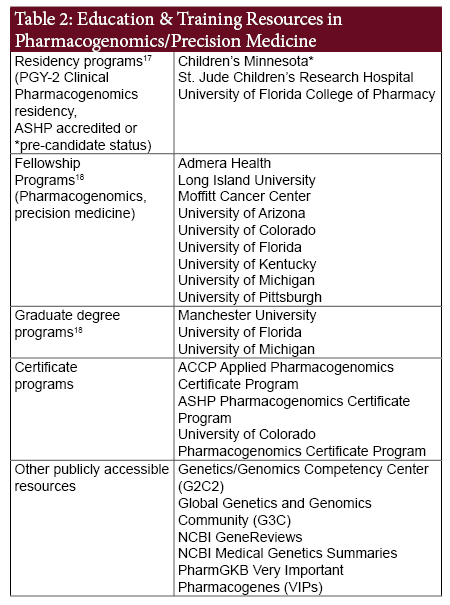
The Pharmacist’s Role
Despite advances in technology, cost, evidence, and clinical resources, barriers related to variable test reimbursement, electronic health record integration, and clinician knowledge have limited the widespread adoption of pharmacogenomic testing.19-21 Implementing pharmacogenomics will require sustained institutional and multidisciplinary commitment for promoting pharmacogenomic testing as a strategy to further enhancing patient and medication use safety.
The ASHP Statement on the Pharmacist’s Role in Clinical Pharmacogenomics has called upon pharmacists to assume leadership roles in pharmacogenomics implementation, practice, education, and research.22 The value of the pharmacist’s role in pharmacogenomics practice has also been recognized by genetics disciplines.23 Pharmacists must take an active role in educating and guiding health care providers with pharmacogenetic testing recommendations, result interpretation, and application of test results to medication selection and use. Indeed, pharmacists are already fulfilling these implementation, educational, and clinical roles through the establishment and leadership of inpatient clinical pharmacogenomics services, pharmacogenomics specialty clinics, and molecular tumor boards.24-26 Pharmacists will also play a critical role in educating patients and providers on the use, benefits, risks, and limitations of direct-to-consumer genetic testing as its ubiquity and use increases.27-29
Conclusion
Pharmacists are well placed to promote and lead pharmacogenomics implementation, utilization, and patient and provider education given their accessibility and position as medication use experts. Numerous educational, clinical, and implementation resources and guidelines are available to support pharmacists as they promote and lead pharmacogenomics implementation, practice, and research efforts.
Educational Affairs
Take Your Pharmacy Skills to Haiti
by Bob Hoy, PharmD
Pictured: Coastline of Haiti at the FOTCOH clinic
Let me start with a quote from a recent volunteer who traveled with a medical team to the Friends of the Children of Haiti (FOTCOH) clinic in Haiti – "We travel from different parts of the United States to Haiti. The common goal forms a bond with our fellow volunteers, our interpreters, and other workers at the clinic – to help as many Haitians in need as possible – the burn victims, the domestic abuse victims, those with infected wounds, the babies who do not have enough to eat, the people with high blood pressure or diabetes. At the end of the clinic, we pray we have made a difference." - Katie, FOTCOH Volunteer
I surely agree with this volunteer. I have been to Haiti with FOTCOH on 23 medical mission trips, starting in 2001. My most recent trip was in November of 2018, and I look forward to going again in 2019. Let me tell you some specifics about the pharmacy role in these missions. Since 2001, pharmacists have been essential members of the team,
dispensing approximately 750,000 pills each clinic to 2,000 – 2,500 patients. These include prescription medications to treat chronic hypertension, diabetes, reversible airway diseases, seizure disorders, congestive heart failure (CHF), anemia, and malnutrition. During the clinic, patients also receive medications for acute conditions such as exacerbations of asthma, tropical and non-tropical infectious diseases, scabies, intestinal parasites, burns, cuts, inflammation, musculoskeletal pain, gastritis, and dehydration.
To do this safely and efficiently, FOTCOH volunteers have developed medical guidelines, pharmacy guidelines, and a medication formulary. Committees meet regularly throughout the year to review these guidelines and make changes to the formulary. The pharmacists, under the direction of volunteer Erin Briggs, PharmD, keep an up-to-date inventory, order medications from a variety of sources up to one year in advance, and meet by teleconferences throughout the year.
The goal of FOTCOH is to have 2-3 pharmacists join each team that goes to Haiti. These teams of U.S. volunteers go in January, March, May, July, September and November. In addition to the pharmacist volunteers, the U.S. team members include about five “providers”, five nurses and four “non-medical” volunteers. Some teams also include a dentist and/or a surgeon. At each clinic, we are joined by four physicians from Haiti and about 40 Haitian paid staff, who serve as our interpreters and “technicians”. For example, in the pharmacy, there are seven Haitian pharmacy technicians working under the direct supervision of the U.S. pharmacists. These highly skilled Haitian pharmacy workers are employed six times a year and learn their jobs very well.
Pictured: US Volunteers, Bob Hoy, Debbie Greene and Mark Ludwig
A typical day at the clinic begins around 7:00 AM when a group of about four U.S. and Haitian workers go out beyond the gates of the FOTCOH compound where the patients are waiting. Because the clinic is permanent, many of the patients with chronic conditions such as hypertension, diabetes, CHF, or asthma have slips of paper that identify them. They are returning for medication refills and a health screening. These patients are sent into the compound to the medical records station. Other patients come for a variety of acute conditions such as infant check-ups, or dentist/surgery screenings.
Pictured: Bob Hoy in the pharmacy at the FOTCOH clinic with a young visitor
Next, workers triage the remaining patients and accept as many as possible into the process. Most wait outside for their turn to be seen. Inside the compound, workers guide the patients through the various stations in the clinic, including the pharmacy. Once a patient has been diagnosed and treated, they leave the compound. The workers take a common lunch break and then finish around 3:00 PM.
Pictured: Inside the FOTCOH pharmacy
After clinic, the U.S. volunteers relax, go to a local beach, and then have supper together. We share experiences of the day in a short team meeting. Most U.S. volunteers stay for two weeks, but FOTCOH provides the option to come for one week. This is to encourage more providers, pharmacists, nurses and non-medical volunteers to come who may not have enough vacation time to stay for two weeks. FOTCOH staff in Haiti escort all U.S. volunteers throughout the entire time that they are in Haiti. On the weekend between the two clinic work weeks, there is free time to visit the nearby city of Jacmel, spend time shopping, visiting the beach, going to church on Sunday, etc. The safety of the U.S. volunteers is foremost, so in addition to being escorted throughout these activities, limitation on some activities are observed, per FOTCOH regulations.
A FOTCOH medical mission trip costs
$40,000 to operate including medications,
food and utilities. For an individual
volunteer, the fee is $600 for one week
and $900 for two weeks. In addition to this fee for “in country transportation”, lodging at the clinic, food and emergency travel insurance, each volunteer pays for
their airfare to and from Haiti. However, you will be able to use the FOTCOH generated Qgiv® fundraising platform to raise funds for your team fees and the link
can be sent to your friends and family. Anything raised above your fees will go to the general FOTCOH funds any can also generate new donors for FOTCOH. Learn more about this at the FOTCOH website:
www.fotcoh.org.
I can honestly say that my experience as a FOTCOH volunteer pharmacist has changed my life. I have also learned practical knowledge that helps me as a pharmacist from my participation in FOTCOH activities. Your skills as a pharmacist will contribute significantly to the success of this medical outreach to the poorest country in the western hemisphere. I would be glad to talk with you about volunteering for an upcoming FOTCOH medical team. Find out more at the FOTCOH website or contact me
Features
2019 Greeting & Seven Ways to get MORE out of your ICHP membership in 2019
Feature Article
Greetings ICHP Member:
The New Year is already a month old and we would like to thank you for your membership in ICHP – a membership that we think will prove very valuable to you in 2019! We also want to highlight
7 ways to get more from your ICHP membership.
The more you use your membership, the more valuable it becomes. You can use your membership to connect with other members, take on small tasks to help ICHP, volunteer to serve on a division, committee or network, use the resources members and staff have created on the ichpnet.org website, participate in outstanding educational offerings and take part in our online social media: Facebook, Twitter, LinkedIn and Instagram!
In 2017 the Illinois Pharmacy Practice Act was supposed to sunset, which means it should have been reviewed and renewed by the Illinois General Assembly and the Governor. That would have given the profession a chance to update and revise it to better reflect today’s and tomorrow’s practice of pharmacy. Unfortunately, a Chicago Tribune investigation in 2016 turned the tables on the profession, putting pharmacy practice in Illinois under the microscope and resulted in the creation of a Statewide Task Force that is now in the process of publicly recrafting the Practice Act through the end of August. Fortunately, ICHP will play a major role in the process and you can join that process by watching your emails and other communications from ICHP and developing a strong relationship with your own State legislators. If advocacy is your thing or at least peaks your interest, this is the year to get involved with all of ICHP’s advocacy efforts!
ICHP always needs a strong cadre of dedicated volunteers. It’s really easy to jump in and start serving ICHP and the profession. Through monthly conference calls as a member of an ICHP division, committee or network, making shorter term commitments on an educational meeting planning committee (like the Spring and Annual Meetings), as a local affiliate officer, student chapter officer or member of the ICHP Board of Directors. You can make a difference for pharmacy while building your leadership skills and your professional network.
We sincerely hope that you will review these
7 ways and get a bigger bang for your ICHP membership buck! You owe it to yourself and we owe it to you!
Sincerely,
Noelle Chapman, ICHP President
Scott A. Meyers, ICHP Executive Vice President
ASHP Delegates for 2019-2020
Feature Article
The Illinois Council of Health-System Pharmacists was responsible for conducting the election of the Illinois Delegates to the ASHP House of Delegates for the 2019 Summer Meeting.
There were three (3) delegate positions open for two-year terms. The three candidates who received the most votes to join Noelle Chapman and Ann Jankiewicz as Illinois’ five delegates are:
Chris Crank
Andy Donnelly
Jennifer Phillips
These winners will also serve in 2020.
ICHP's alternate delegates are:
Travis Hunerdosse
Bryan McCarthy
Bernice Man
Carrie Sincak
Scott Meyers
Trish Wegner
Stay Connected
ICHP is on all of your favorite social media sites!
Feature Article
Stay Connected!
Free CPE Opportunities
Feature Article
Recorded at the 2018 ICHP Annual Meeting for Open Access Home Study
(Pharmacist-specific and Technician-specific credit available.)
Please see our
program sheet for learning objectives, accreditation information and instructions on how to complete your CPE.
This activity was supported by an educational grant from Sanofi Pasteur US.
2019 ICHP/MSHP Spring Meeting
Registration is Open!
Feature Article
ICHP/MSHP Spring Meeting - "Implement Best Practices - See the IMPACT!"
March 29 & 30, 2019 at the Gateway Center in Collinsville, IL
National Poison Prevention Week
March 17-23
Feature Article
Pharmacy Legislative Day
Registration is open!
Feature Article
College Connection
Chicago State University College of Pharmacy
My Ambulatory Care APPE: A Worthwhile Experience
College Connection
by Viktoriya Popovych, P4 SSHP Member Chicago State University College of Pharmacy
I am excited to report on my ambulatory care APPE at Rush University Medical Center that I recently completed! I felt that it was very engaging and it truly afforded me the opportunity to utilize the skills that I had learned from my previous APPEs and from what I learned in the classroom. Pharmacists within the clinic manage patients with a variety of common, chronic disease states, such as diabetes, hypertension, and those requiring anticoagulation. Pharmacists are responsible for interviewing patients, addressing any medication-related needs, and making dose adjustments as necessary. Both students and residents are fully integrated into the workflow, and I truly enjoyed it!
As with any new experience, we began by observing the process. We were afforded the opportunity to see our preceptor in action, and we were able to mimic her approaches as she communicated with both the patients and the physicians within the clinic. After the first week, we were responsible for conducting patient interviews independently and we consulted with our preceptor for final pharmacotherapy recommendations and documentation. We were expected to be intimately familiar with each patient before presenting to our preceptor by knowing recent vital signs, current drug therapy, adherence issues, etc. All patients received medication education, and oftentimes, we had to demonstrate how to use injectable agents such as enoxaparin and exenatide and how to monitor blood glucose values. Lastly, we were also required to provide dietary education for patients with diabetes and those who require anticoagulation with warfarin.
I appreciated how the pharmacists and other healthcare providers would collaborate to provide optimal patient care. For example, there was an individual who required immediate anticoagulation. The patient was finally convinced to begin therapy, but initially he was highly reluctant to do so before the pharmacist and physician intervened. Another thing that I can appreciate regarding this APPE is that each patient visit involved a different, overall approach and interacting with various “flavors” of individuals will definitely benefit me in my future practice. Overall this APPE rotation challenged me, and for that, I am grateful.
Midwestern University Chicago College of Pharmacy
Reflections of my Summer Leadership Program with CVS
College Connection
by Olivia Knack, PS-3, Student Member Midwestern University Chicago College of Pharmacy
My name is Olivia Knack and I am a third year pharmacy student at Midwestern University Chicago College of Pharmacy. This past summer I traveled to Washington D.C. to take part in a five-week internal CVS Summer Leadership Development Program. I was one of twelve CVS pharmacy interns selected to participate in the program from the thousands of interns who applied from across the nation.
Each week during the program was dedicated to a particular element of leadership within CVS. During week 1, I focused on learning the metrics that CVS uses to evaluate retail store performance. CVS collects monthly data and analyzes it to rank each store at the district, region, and division levels and to ultimately determine where each store stands in the entire enterprise. Such data analysis on the corporate level has contributed to the success of CVS Health as it ranks #7 on the 2017 Fortune 500 list. Like many top companies, CVS uses a metric-based approach to gauge each store’s performance with respect to company goals and to compare stores to one another. Each metric is organized into groupings called scorecards that share the same focus.
During weeks 2,3, and 4, I applied my knowledge of metrics while observing CVS stores and analyzing their metrics and performance. Each intern was assigned to observe, analyze, and work with three retail locations in the Washington D.C. – Virginia – Maryland area. I was assigned to one store in Washington D.C. and two in Virginia.
To understand and evaluate the performance of each of my stores, I received each store’s metrics from the previous month. To gain special insight into each store’s situation, I traveled to each store to observe the state of affairs. After observing each of my stores, I provided staff with specific feedback targeted at improving performance based on store metrics and my observations. I went on to design and write a specific Action Plan for each pharmacy with steps for employees to follow to achieve targeted performance improvement over a realistic time period. By sharing my observations, providing feedback, and meeting with employees to communicate about ideas related to each Action Plan, I took steps to ensure that each pharmacy team’s members were prepared to collaborate to achieve shared goals.
During my fifth and final week, my mentor group and I created a 20-minute final presentation focused on a specific CVS metric scorecard. We presented this to our mentors, development program coordinators, regional directors, and finally the division 3 Vice President. However, feedback from and collaboration with mentors and other influential CVS leaders was not limited to our final presentation. Interns met each Friday for mentor days with experienced CVS corporate leaders selected to work alongside interns to support our work observing and evaluating retail store performance. On mentor days, I visited stores with my mentor, practiced reading store metrics, designed store Action Plans, and provided in-the-moment feedback to pharmacy staff. After completing our mentor day tasks, my mentor and I discussed my professional development within CVS and pharmacy in general, and we discussed my personal development, especially as it related to leadership skills such as communication and the giving and receiving of feedback.
This one-on-one mentoring component of the program was invaluable is it advanced my growth as a CVS intern and made me more comfortable giving and receiving feedback. Feedback can be intimidating to give and especially challenging to receive, process, and use for improvement. However, I have found that listening closely to a person’s perspective and suggestions is absolutely necessary to progress and develop in the field of pharmacy. When someone takes the time to provide feedback, it is important to listen and know that it is coming from a good place. Constructive criticism from a supervisor or mentor could improve your practice and not receiving feedback may be limiting your growth.
Ultimately, this leadership internship prepared me to be more confident, assertive, and to provide guidance in a clear, polite, and professional manner. Having a mentor dedicated to maximizing my learning potential throughout the internship was very important to me. While feedback can sometimes feel uncomfortable, this internship provided me with the opportunity to challenge myself. I improved my leadership skills by practicing communication with others, listening to and using constructive criticism, and confidently and effectively offering guidance based on data and observations in order to improve retail pharmacy performance. Overall, I would highly recommend the CVS Summer Leadership Development Program.
Rosalind Franklin University College of Pharmacy
My Experience at the ICHP Annual Meeting Residency Showcase
College Connection
by Mickey Hathuc, P-3, ICHP Professional Chair Rosalind Franklin University of Science & Medicine, College of Pharmacy
As I near the completion of the didactic portion of my Doctor of Pharmacy program at RFU, I have been thinking about what I would like to pursue after I graduate. There are numerous career opportunities available out there for me when I graduate pharmacy school in two years. As I was going through school, I was beginning to become interested in doing a residency program. After attending the residency showcase during my second year of pharmacy school it helped solidify my decision to pursue a residency.
My interests in completing a residency developed through the idea of applying the clinical knowledge learned in pharmacy school in a collaborative effort as part of a health care team. During my P2 year, I had the opportunity to attend the residency showcase held at the 2017 ICHP Annual Meeting. I was encouraged to attend by classmates in their P3 and P4 years in order to prepare for when I would be applying for a residency by learning how to talk to the residents and knowing what questions to ask. I was not sure what to expect and was overwhelmed with the process. Being a P2, I was too intimidated to talk to any of the residents. After the meeting, I decided I would attend the following year as a P3 student. I wanted to get a better understanding of the process and be prepared to talk to the residents and residency directors. I followed through on my plan and attended the 2018 ICHP Annual Meeting this past September. This time I had the opportunity to talk to a few programs.
Just like the previous year, the residency showcase was crowded with P4 students interested in pursuing residency training after graduation. As I made my way through the crowd, I stopped at a few booths and spoke to current residents and program directors. Even though I was a P3 student, many of the residents were happy to talk to me about their daily activities including their patient care activities. In addition, they gave me advice on how to prepare a well-written CV and the importance of a letter of intent when applying for residency programs. Some residents even took the time to explain the interview process and how programs select residents. I was able to get information about various programs and how residents select elective rotations. The ICHP residency showcase was a great experience for me, which helped me to feel more prepared for attending the ICHP Annual Meeting and ASHP Midyear Clinical Meeting next year as a P4 student.
My experience attending the ICHP residency showcase has been very enlightening. I would encourage students in their first and second years to attend the ICHP Annual Meeting. The ICHP meeting exposes students to many pharmacy practice opportunities in the health-care systems. It also introduces students to the process of finding a residency. I hope others will take advantage of the tremendous opportunity and start early so that they can be prepared in their P4 year.
Southern Illinois University Edwardsville School of Pharmacy
When Should I Start Thinking About Residency?
College Connection
by Kristen Ingold, P2, President-Elect Southern Illinois University Edwardsville (SIUE) School of Pharmacy
The winter months may be the most stressful for PharmD candidates and current PGY1 residents. Since local residency showcases and ASHP Midyear fall within a short time span, the end of the calendar year becomes a hectic time. In addition to attending these showcases, prospective residents have to complete online applications, write numerous letters of intent, and cover travel expenses and application costs for each residency program. All this effort leads up to -- hopefully -- landing interviews and matching with your top ranked program. Considering this occurs in the last year of education, what does this mean for younger students? I will outline a P2’s perspective to residency and my ideal timeline for the next two years of school.
As a first-year pharmacy student, I immersed myself in our SSHP chapter because my faculty mentor highly recommended this organization. I learned about the numerous opportunities provided to the entire student body pertaining to residency. For example, SSHP offers residency preparation sessions and panels, and the members collaborate to attend numerous residency showcases. Everyone told me residency should not be on a first-year student’s mind, but I prefer to know every career pathway available. Therefore, I stepped out of my comfort zone to attend an online preparation session with older students as well as both residency panels. Throughout my first-year, I set goals for what I should accomplish during my P2 year to further increase my knowledge of residency programs.
What has been the benefit from being “pro-residency” so early in school? Many students do not contemplate pursuing residency until late in their third year or early in their APPE rotations. While there is no “optimal time” to think about residency, starting early brings benefits. For example, our preparation sessions provide direct information from faculty members and student experiences on how to approach residency programs and the application process. These sessions offer many “dos and don’ts” for the process as a whole. Although I do not have to worry about completing the application circuit yet, I have an idea of the amount of work and funds needed to seek a residency career pathway.
My personal favorite activities our organization hosts are the two residency panels, since they are an excellent resource for all students. The fall session consists of current PGY1 and PGY2 residents and students are free to ask questions. The spring session focuses on our own P4 students who have recently matched to a residency program. Recently, we held our fall panel for 2018. For mid-November, we did not expect the weather to impede our plans. However, our area experienced heavy snowfall the night prior, leading to multiple residents without a safe way to reach campus for the panel. We did prepare for the most unpredictable of situations, and we had an online video chat on stand-by. Overall, the residents loved sharing their experiences at Midyear, the match process, and experiences in their current programs. In my opinion, nothing can prepare a student better than talking with an actual resident with first-hand experience.
The amount of knowledge I have gathered about residency has designated me the contact person for my classmates as well as the younger students. When I entered this program as a first-year student, I wanted to know more about residency, but did not know where to start. I now feel a sense of pride that I can be that friendly reference I was missing in my P1 year to current P1s and P2s.
Over the next two years, as I shift from didactic coursework to experiential rotations before graduation, I will continue to attend the preparation sessions, panels, and showcases, as well as prepare a spreadsheet of programs I have researched and want to pursue. Residency is a two-way street: you have to like the program as much as the program likes you. My advice to fellow students is to find your contact person, whether that be a faculty mentor or an upperclassman, and communicate with them about residency to see if it is the path for you. And always, remember to keep an open mind; you never know where you will end up.
University of Illinois at Chicago College of Pharmacy - Rockford
Going Gold for the #MoreThan4 campaign: Student Pharmacist Awareness and Clinical Empathy in the Field of Pediatric Oncology
College Connection
by William P. Clafshenkel, PhD, P2, University of Illinois at Chicago College of Pharmacy President-elect, Rockford Student Campus
One in 285 children will be diagnosed with cancer by the time they are twenty years old.1,2 Do you know someone whose life has been affected by pediatric cancer? Take this moment to get to know Sean Fredella and the #MoreThan4 campaign he has started.3 As a sixteen-year-old, Sean recounts the seemingly insurmountable challenges that he faced earlier in his life. He was diagnosed with cancer four times over the course of seven and half years. After extensive medical treatments, including a bone marrow transplant, he has become a cancer survivor and an out-spoken advocate of pediatric cancer awareness. Unfortunately, many children like Sean will not survive.
Cancer is the number one cause of death from disease among children.4 There are over 12 major types of pediatric cancer, with the incidence continuing to rise each year.5 While the National Cancer Institute promotes innovated cancer research, it is estimated that just 4% of their annual budget is allocated to childhood cancer.4 Childhood cancers cannot be treated like adult cancers given their often different origins, molecular targets, and weak correlation to lifestyle or environmental risk factors. Furthermore, treatment modalities and responses are unique in children when compared to adults.
Despite being worlds apart, our ICHP chapter wanted to champion Sean’s cause. Since September was Pediatric Cancer Awareness month, we wanted to share Sean’s story with our students and faculty. Not only did we want to raise awareness about pediatric cancers, but we wanted to remind student pharmacists that treating cancer involves understanding the impact cancer has on social and psychological aspects. Understanding the theory and practice underlying oncology is only part of the equation; an essential linchpin for pharmacist-patient interactions is clinical empathy. We felt that Sean’s story could serve as an empowering point of reflection for student pharmacists by giving them the opportunity to understand and share Sean’s internal perspective. Recognizing and appreciating this internal perspective moves us beyond mere sympathy for a situation and into the realm of “what can I do to help?”.
On an early morning in late September, our chapter set up a small table in our school’s main lobby with flyers containing pediatric cancer statistics, cupcakes adorned with #MoreThan4 decorations, gold ribbons, and a #MoreThan4 selfie frame. We shared Sean’s story between snapshots and bites of food. We pondered the considerations pharmacists must make when treating cancer in a pediatric population. We fielded questions regarding statistics and research endeavors. We promoted our role as pharmacists in the future of cancer medicine. More importantly, we were grateful for the donations we collected for Bear Necessities, a non-profit pediatric cancer foundation helping to fuel pediatric cancer research and treatment that is headquartered in Chicago.
As future pharmacists, some of us may decide to be part of integrated health care teams comprised of physicians and nurses that specialize in pediatric oncology. Organizations such as ICHP give us a platform to expose student pharmacists to events like the #Morethan4 campaign and Sean Fredella’s story. We hope that our actions this past September, and those in the future, continue to develop student pharmacists’ clinical empathy. Moreover, we hope to inspire both students and pharmacists to conquer devastating diseases such as pediatric cancer through novel research, compassionate patient interactions, and advocacy.
More
Upcoming Events
Upcoming Events
Collaborative Pharmacy Task Force
◆February 13, 2019
◆March 12, 2019
◆April 9, 2019
◆May 14, 2019
◆June 11, 2019
◆July 9, 2019
◆August 13, 2019
Sangamiss CPE ProgramDoes an Aspirin a Day Keep the Doctor Away?February 12, 2019
Register online!
Accredited for health-system pharmacists
NISHP CPE Program
Augmented Renal Clearance
February 26, 2019
Accredited for health-system pharmacists
Sangamiss CPE Program
Medical Management of the Potential Organ Donor
March 12, 2019
Accredited for health-system pharmacists and pharmacy technicians
2019 Pharmacy Legislative Day
March 13, 2019 - Springfield, IL
National Poison Prevention Week
March 18-24, 2019
ICHP/MSHP 2019 Spring MeetingImplement Best Practices - See an Impact!March 29-30, 2019
Gateway Center - Collinsville, IL
Register online!
2019 ICHP Annual Meeting
September 12-14, 2019
Drury Lane Conference Center - Oakbrook Terrace, IL
2019 Leadership Retreat
November 15-16, 2019
iHotel and Conference Center - Champaign, IL
By invitation only
2020 ICHP Spring Meeting
March 27-28, 2020
Embassy Suites Conference Center - East Peoria, IL
Regularly Scheduled Conference Calls
Educational Affairs: 3rd Tuesday of each month - 11:00 am
Executive Committee: 2nd Tuesday of each month - 7:00 pm
Government Affairs: 3rd Monday of each month - 5:00 pm
Marketing Affairs: 3rd Tuesday of each month - 8:00 am
Organizational Affairs: 2nd Wednesday of each month - 3:00 pm
Professional Affairs: 4th Tuesday of each month - 3:00 pm
Technology Committee: 2nd Friday of each month - 8:00 am
Regularly Scheduled network meetings
Ambulatory Care Network: 1st Thursday each month - 12:00 pm
Chicago Area Pharmacy Directors Network: Dinner meeting - see
ICHP calendar for details
New Practitioners Network: 3rd Tuesday of each month - 5:30 pm
Welcome New Members
Members who joined October-December 2018
Joined in October
Sleman Alayobi - recruited by: Alexis Tandyk
Maryam Alebraheem - recruited by: Sara Koehnke
May Alebraheem - recruited by: Sara Koehnke
Sarju Amin - recruited by: Alexis Tandyk
Lisa Apostolovski
Sabreen Arman
Paulina Bakalina - recruited by: Alexis Tandyk
Aleeya Barrolle
Angelina Bayko - recruited by: Nicholas Moffett
Duyen Bui - recruited by: Alexis Tandyk
Jiaqi Cai - recruited by: Alexis Tandyk
Taylor Cairns - recruited by: Alexis Tandyk
Irene Cho - recruited by: Alexis Tandyk
Jason Chung - recruited by: Alexis Tandyk
Monica Czuma - recruited by: Alexis Tandyk
Jefferson Dang
Hamilton Dang
Amma Donkor - recruited by: Alexis Tandyk
Hope Marie Dykes - recruited by: Linda Fred
Mark Foster - recruited by: Nicholas Moffett
Mariah Freeman
Michael Gallagher - recruited by: Alexis Tandyk
Catherine Gilmore
Jacob Groenwald - recruited by: Alexis Tandyk
Daryl Gussarson - recruited by: Alexis Tandyk
Sylvia Ho
Emily Hoadley - recruited by: Travis Hunerdosse
Natalia Hodurek
Yueyue Hu - recruited by: Alexis Tandyk
Lina Hwang - recruited by: Alexis Tandyk
Jolanta Ignaciuk - recruited by: Alexis Tandyk
Nkechinyerem Ihenachu - recruited by: Nicholas Moffett
Alexander Infante
Hannah Jenkins - recruited by: Alexis Tandyk
Joslyn Jose
Kristina Karapetyan - recruited by: Alexis Tandyk
Stefanie Kerns - recruited by: Alexis Tandyk
Kwesi Kesse
Kristyn Krajewski - recruited by: Alexis Tandyk
Kacie Kuehn
Jacey Lamboley
Kelly Lee - recruited by: Kit Moy
Chihyi Lee - recruited by: Alexis Tandyk
Anh Luu - recruited by: Alexis Tandyk
Ami Makwana - recruited by: Alexis Tandyk
Truong Nguyen - recruited by: Nicholas Moffett
Jennifer Novak - recruited by: Alexis Tandyk
Kimberly Parry
Priya Patel - recruited by: Sara Koehnke
Ritesh Patel - recruited by: Sara Koehnke
Jay Patel - recruited by: Alexis Tandyk
Priya Patel - recruited by: Alexis Tandyk
Avni Patel - recruited by: Alexis Tandyk
Niti Patel
Nivedha Poondi - recruited by: Alexis Tandyk
Sarah Power - recruited by: Alexis Tandyk
Julian Rincon
Jennifer Roberts
Anthony Rosella - recruited by: Nicholas Moffett
Kylie Russell - recruited by: Alexis Tandyk
Sonal Sahni - recruited by: Alexis Tandyk
Sarah Salama
Ashley Seely
Ayesha Shamim - recruited by: Alexis Tandyk
Justin Shiau
Otilia Soto - recruited by: Alexis Tandyk
Ben Stillwell - recruited by: Alexis Tandyk
Max Stone - recruited by: Nicholas Moffett
Sarah Suk - recruited by: Alexis Tandyk
Linda Temmer-Garcia
Gerda Timonin
Amy Valkovec - recruited by: Alexis Tandyk
Ngoc Vo - recruited by: Alexis Tandyk
Nancy Vo
Andrew Vogler
Collin Vollmer
Kurt Weissheimer - recurited by: Nicholas Moffett
Lisa Wendt - recruited by: Alexis Tandyk
Yu Xinqi
Yvonne Yen - recruited by: Alexis Tandyk
Amira Yusuf
Kaili Zeng - recruited by: Alexis Tandyk
Joined in November
Erica Butler
Lykeisha Clay - recruited by: Jennifer Splawski
Bridget Dormady - recruited by: Chris Crank
Andrew Eggman
Alexandra Felix
Letrina Flowers
Philip Gozales - recruited by: Sara Koehnke
Patti Hoovey - recruited by: Christopher Crank
Hajer Ibrahim
William Johnson
Patryk Klimek
Nathan Lamb - recruited by: David Lamb
Stephany Nunez Cruz
Vickie Papageorge
Annalee Ramirez
Lindsey Smith
Arlou Soriano
Wafeek Wahba
Joined in December
Ildifonse Fuentes - recruited by: Clara Gary
Jessica Loftus
Sarah Sokol
Myesha Tabriz
ICHP Pharmacy Action Fund (PAC)
ICHP Pharmacy Action Fund Contributors as of 12/31/19
Board of Directors
Executive Officers, Regional Directors, Division Directors, Representatives, Network Chairs and Committee Chairs
|
Noelle Chapman
President
312-926-5147
E-mail Noelle
|
Travis Hunerdosse
Immediate Past President,
Committee Chair, Nominations Committee
312-926-6124
E-mail Travis
|
Carrie Vogler
President-Elect
217-545-5394
E-mail Carrie
|
|
Kathryn Schultz
Treasurer
312-926-6961
E-mail Kathryn
|
Ed Rainville
Secretary
309-655-7331
|
Scott Meyers
Executive Vice President ICHP Office
815-227-9292
E-mail Scott
|
|
Amy Boblitt
Regional Director Central
217-788-3015
|
Elise Wozniak
Regional Director Northern
E-mail Elise
|
Lynn Fromm
Regional Director Southern
618-391-5539
E-mail Lynn
|
|
Mary Lee
Organizational Affairs Director
630-515-7311
E-mail Mary
|
Karin Terry
Professional Affairs Director
309-655-3390
E-mail Karin
|
David Martin
Educational Affairs Director
E-mail David
|
|
Bernice Man
Marketing Affairs Director
773-702-9641
E-mail Bernice
|
Christopher Crank
Government Affairs Director
630-978-4853
E-mail Chris
|
Kristine VanKuiKen
Technician Representative
312-355-2035
E-mail Kristine
|
|
Bryan McCarthy
Chairman, New Practitioners Network
773-702-1030
E-mail Bryan
|
Brian Cryder
Ambulatory Care Network Chair
630-515-7656
E-mail Brian
|
David Tjhio
Chairman, Committee on Technology
816-885-4649
E-mail David
|
|
Jennifer Phillips
Editor & Chairman - KeePosted
630-515-7167
E-mail Jennifer
|
Milena McLaughlin
Assistant Editor - KeePosted
630-515-7293
E-mail Milena
|
Sandra Durley
340B Network Chair
(312) 996-4940
Email Sandra
|
|
Tara Vickery Gorden
Small and Rural Hospital Network Chair
(618) 643-2361 ext 2335
Email Tara
|
|
|
Student Chapter Presidents
Erin Hermes
Chicago State University College of Pharmacy
|
Shivek Kashyap
Midwestern University Chicago College of Pharmacy
|
Kristina Khaireddine
Roosevelt University College of Pharmacy
E-mail Kristina |
|
Brit Der
Rosalind Franklin University College of Pharmacy
|
James Reimer
Southern Illinois University Edwardsville School of Pharmacy
|
Henry Okoroike
University of Illinois at Chicago College of Pharmacy
E-mail Henry
|
|
Hannah Dalogdog
University of Illinois at Chicago College of Pharmacy
Rockford Campus
|
|
|
Northern Illinois Society of Health-System Pharmacists (NISHP)
Denise Kolanczyk
President
|
Milena McLaughlin
President-elect
|
Erika Hellenbart
Immediate Past President
E-mail Erika
|
David Martin
Treasurer
|
Andrew Merker
Secretary
|
Richard Puccetti
Technician Representative
|
West Central Society of Health-System Pharmacists (WCSHP)
Metro East Society of Health-System Pharmacists (MESHP)
Sangamiss Society of Health-System Pharmacists
Billee Samples
President
|
Megan Stoller
President-elect
|
Julie Downen
Immediate Past President
|
Vacant Roles at Affiliates
President - Rock Valley Society
|
President - Southern IL Society
|
President - Sugar Creek Society
|
2018 KeePosted Index
| KeePosted 2018 Index - Volume 44 |
| Article Category |
Title |
Author(s) |
Issue |
| Board of Pharmacy Update |
Highlight
of the January Meeting |
Scott
A. Meyers |
2 |
| Board of Pharmacy Update |
Highlights
of the March Meeting |
Scott
A. Meyers |
3 |
| Board of Pharmacy Update |
Highlights
of the May Meeting |
Scott
A. Meyers |
5 |
| Board of Pharmacy Update |
Highlights
of the July Meeting |
Scott
A. Meyers |
7 |
| Board of Pharmacy Update |
Highlights
of the September Meeting |
Scott
A. Meyers |
8 |
| College Connection - Chicago State University College of
Pharmacy |
Albertsons
Internship Reflection |
Breanna
Wright, PS2 |
2 |
| College Connection - Chicago State University College of
Pharmacy |
Nontraditional
IPPE in Public Health: A Truly Invaluable Journey |
Sara
Shakhwar, P1 |
4 |
| College Connection - Chicago State University College of
Pharmacy |
My
First Medial Mission: An Unforgettable Experience |
Florence
Garza |
7 |
| College Connection - Chicago State University College of
Pharmacy |
Clinical
Pharmacy Internship Program at The University of Chicago Medicine |
Erin
L. Hermes, PS-3 |
8 |
| College Connection - Midwestern University Chicago College of
Pharmacy |
Student
Interview: Profile of a Pharmacy Student's Journey |
Ziad
Dabbaghm PS-2 |
1 |
| College Connection - Midwestern University Chicago College of
Pharmacy |
Reflections
of a Student Pharmacist |
Ziad
Dabbaghm PS-2 |
3 |
| College Connection - Midwestern University Chicago College of
Pharmacy |
Legislative
Day: Advocating Together |
Kelly
Moran, PS-2 |
5 |
| College Connection - Midwestern University Chicago College of
Pharmacy |
Reflections
of an ICHP Mentor |
Ani
Bekelian, PS-3 |
7 |
| College Connection - Midwestern University Chicago College of
Pharmacy |
Paying
Homage to the Previous Historian, A Student Interview |
Ani
Bekelian, PS-3 |
8 |
| College Connection - Roosevelt University College of Pharmacy |
Residency
101: The Road to Residency |
Patrick
Tednes, PS-3 |
1 |
| College Connection - Roosevelt University College of Pharmacy |
New
Updates and Upcoming E-board Elections |
Anna
Majerczak, PS3, Hayden Hagemann, PS-3 |
3 |
| College Connection - Roosevelt University College of Pharmacy |
My
Reflection as President of RUCOP-SSHP |
Kimberly
Zaleski, PS3 |
5 |
| College Connection - Roosevelt University College of Pharmacy |
New
E-Board Excited for Upcoming Year |
Sara
Koehnke, PS-2 |
7 |
| College Connection - Roosevelt University College of Pharmacy |
Fall
Term Update |
Sara
Koehnke, PS-2 |
8 |
| College Connection - Rosalind Franklin University |
Our
First ICHP Clinical Roundtable |
Drew
Bailey, PS-3 |
1 |
| College Connection - Rosalind Franklin University |
Giving
Back at RFU |
Joseph
DeSantis, PharmD candidate |
3 |
| College Connection - Rosalind Franklin University |
ICHP
P1 Liaison Reflection |
Brit
Der, PS-1 |
5 |
| College Connection - Rosalind Franklin University |
Career
Exploration Through Professional Outreach |
Angelina
Raimonde, PS-3 |
7 |
| College Connection - Rosalind Franklin University |
Immunization
training in the First professional year (P1): A student perspective |
Krista
Paplaczyk, P3 |
8 |
| College Connection - Southern Illinois University Edwardsville |
ASHP
Midyear Clinical Meeting as a P3: Dollars and Sense |
Summer
Record, P-3 |
2 |
| College Connection - Southern Illinois University Edwardsville |
Sold!...
To the Highest Bidder: The SIUE SSHP Faculty Auction |
James
Reimer, P2; Paris Smith, P2 |
4 |
| College Connection - Southern Illinois University Edwardsville |
Meet
the Board |
Kristen
Ingold, P2 |
6 |
| College Connection - Southern Illinois University Edwardsville |
Back
to Basics: Driving Leadership for Dialysis |
Kristen
Ingold, P2 |
8 |
| College Connection - University of Illinois at Chicago College
of Pharmacy |
ICHP
Summer Retreat Provides Great Opportunity for Personal and Professional
Development |
Henry
Okoroike |
8 |
| College Connection - University of Illinois at Chicago -
Rockford |
Developing
Clinical Skills, Pharmacy Knowledge, and Teamwork - Local Clinical Skills
Competition at UIC-COP |
Mehul
Amin, P3 |
4 |
| College Connection - University of Illinois at Chicago -
Rockford |
Journal
Clubs - Learning to Criticize and Improve Clinical Practice |
PhuongDung
Luong, P3 |
6 |
| Directly Speaking |
Let's
Get A Jump On The New Year |
Scott
A. Meyers |
1 |
| Directly Speaking |
It's
fun to bring a friend (Or a co-worker!) |
Scott
A. Meyers |
2 |
| Directly Speaking |
An
Update from the Task Force |
Scott
A. Meyers |
3 |
| Directly Speaking |
What
We Learned From You! |
Scott
A. Meyers |
4 |
| Directly Speaking |
There's
More to Life Than Pharmacy |
Scott
A. Meyers |
5 |
| Directly Speaking |
|
Scott
A. Meyers |
6 |
| Directly Speaking |
Something
They Don't Teach in Pharmacy School, but They Should |
Scott
A. Meyers |
7 |
| Directly Speaking |
Welcome
to the New KeePosted |
Scott
A. Meyers |
8 |
| Educational Affairs |
A
New Year and New Goals: Release of the 2017 ACC/AHA Hypertension Guidelines
Provide Clarity to the Controversy of Blood Pressure Management |
Elizabeth
Van Dril, PharmD, BCPS, PGY-2 Ambulatory Care Resident; Ryan Bagnell, PharmD;
Jen Phillips, PharmD, BCPS, FCCP, FASHP |
2 |
| Educational Affairs |
New
Oncology Drugs of 2017: Novel Intravenous Approvals |
Christopher
Campbell, PharmD, BCPS, BCOP; Janna Afanasjeva, PharmD, BCPS; Chloe
Majkowski, Pharm D Candidate |
3 |
| Educational Affairs |
Alternatives
in the Management of Cardiac Toxicity from Tricyclic Antidepressant Overdose
in Light of the Present Intravenous Sodium Bicarbonate Shortage |
Jaxson
Burkins, PharmD, PGY2 Emergency Medicine Pharmacy Resident; Anthony M Burda,
BSPharm, DABAT |
4 |
| Educational Affairs |
New
Oral Oncolytics of 2017: Key Points for a Counseling Pharmacist |
Janna
Afanasjeva, PharmD, BCPSa; Chloe Majkowski, PharmD Candidate; Christopher
Campbell, PharmD, BCPS, BCOPb, |
5 |
| Educational Affairs |
Call
for Posters - Deadline January 10, 2019 |
|
7,8 |
| Educational Affairs |
Director
of Educational Affairs Reflection |
Lara
Ellinger, PharmD, BCPS |
8 |
| Educational Affairs |
Impact
of Pharmacist-Led Medication Reconciliation Programs on Readmission Rates,
Costs, and Patients' Outcomes During Transition of Care: A Systematic Review |
Marija
Andreevski, PharmD Candidate; Martina Bidzhova, PharmD Candidate; Ernestas
Sutas, PharmD Candidate; Abby Kahaleh, Bpharm, MS, MPH, PhD |
8 |
| Educational Affairs Meeting News |
ICHP
2018 Spring Meeting Registration Open! |
|
2 |
| Educational Affairs Meeting News |
ICHP
2018 Spring Meeting - Get the Handouts & the App! |
|
3 |
| Educational Affairs Poster Abstracts |
2018
ICHP Spring Meeting Poster Abstracts |
|
4 |
| Features |
Public
Act 100-0564 - Mandated Registraion with PMP-FAQs |
Scott
A. Meyers |
1 |
| Features |
2018
Pharmacy Legislative Day |
|
1 |
| Features |
Professional
& Educational Affairs Article Series |
Jen
Phillips, PharmD, |
1 |
| Features |
Who
Cares About Me? |
Sharon
Karina, PharmD Candidate |
2 |
| Features |
Meet
Sharon Karina |
|
2 |
| Features |
Call
for Nominations - Lead, Follow or Get out of the Way! How Would You Like to Run for an ICHP
Office? |
Scott
A. Meyers |
3 |
| Features |
Meet
Xing Jin |
Xing
Jin, PharmD candidate |
3 |
| Features |
You
Want Me to Talk to a Legislator??? |
Kathryn
Schultz, PharmD, BCPS, BCOP; Michaela Murphy, PharmD Candidate; Katie Dalton,
PharmD Candidate |
3 |
| Features |
Nominate
a Winner |
Scott
A. Meyers |
4 |
| Features |
2018
Annual Meeting - Taking Pharmacy to New Heights |
|
5 |
| Features |
The
ICHP Pharmacy Action Fund "Auction with A Twist" Returns |
Scott
A. Meyers |
6 |
| Features |
Announcing
Big Changes - KeePosted Transformation coming in November 2018! |
|
6 |
| Features |
Elevate
Your Meeting Experience! - Download our mobile app! |
|
7 |
| Features |
Emergency
Response Drill through the Illinois Health-System Pharmacy Response Network
(HSPRN) |
Cindy
Li, PharmD Candidate |
7 |
| Features |
Our
New ICHP Communications Manager - Meet Melissa Dyrdahl |
Melissa
Dyrdahl |
7 |
| Features |
Time
to Celebrate for Pharmacy - October is National Pharmacy Month |
Scott
A. Meyers |
7 |
| Features |
2018
Best Practice - CPE Opportunity: Use of Multimodal Analgesia in Women
Post-Cesarean Section: From Innovation to Bedside |
Zahra
Khudeira, PharmD, MA, BCPS, CPPS; Ashleigh Swearingen, MD; Carlos Sandoval,
MD; Lelas Shamaileh, P4; Noha Mohamed, P4; Serene Abuzir, P4, Alexander
Frank, MS |
8 |
| Features |
Election
Results |
|
8 |
| Features |
Call
for Delegates: Attendtion ASHP Pharmacist Members - It's Time to Elect
Delegates to ASHP's House |
Scott
A. Meyers |
8 |
| Features |
Annual
Meeting Recap - Elevate Good Time, Come On.
Yahoo!* |
Trish
Wegner, BS Pharm, PHarmD, FASHP |
8 |
| Features |
Pharmacy
Action Fund - Auction With A Twist |
|
8 |
| Government Affairs Report |
The
CPTF and the PMP: More Than Just Letters |
Jim
Owen, Scott Meyers |
1 |
| Government Affairs Report |
Collaborative
Pharmaceutical Task Force Begins Its Work |
Jim
Owen, Scott Meyers |
2 |
| Government Affairs Report |
The
Fun Has Begun! |
Jim
Owen, Scott Meyers |
3 |
| Government Affairs Report |
The
Beat Goes On! |
Jim
Owen, Scott Meyers |
4 |
| Government Affairs Report |
The
List Gets A Little Shorter |
Jim
Owen, Scott Meyers |
5 |
| Government Affairs Report |
No
Major Damage from This Year's Session |
Jim
Owen, Scott Meyers |
6 |
| Government Affairs Report |
An
Update from the Collaborative Pharmaceutical Task Force |
Scott
A. Meyers |
7 |
| Government Affairs Report |
Hey
Task Force, What Ya Doin'? |
Jim
Owen, Scott Meyers |
8 |
| Hi Tech |
Introducing
Kristine VanKuiken |
Kristine
VanKuiken, CPhT |
8 |
| Hi-Tech |
UI
Health Pharmacy Tech Task Force - Social Mixer Highlights |
Leann
Nelson |
1 |
| ICHP Pharmacy Action Fund (PAC) Contributors |
Contributor
List |
|
1,2,3,4,5,6,7,8 |
| ICHPeople |
|
|
3,4,5,6,7,8 |
| Leadership Profile |
Meet
Abby A. Kahaleh, Bpharm, MS, PhD, MPH |
|
1 |
| Leadership Profile |
Meet
Mary Lee, PharmD, BCPS, FCCP |
|
2 |
| Leadership Profile |
Meet
Bernice Man, PharmD |
|
3 |
| Leadership Profile |
ICHP
Spotlight Interview: Christopher W Crank |
|
4 |
| Leadership Profile |
Meet
Karin Terry, PharmD |
|
5 |
| Leadership Profile |
Meet
David Martin |
|
6 |
| Leadership Profile |
Membership
Spotlight: Meet Kristine VanKuiken |
|
7 |
| Leadership Profile |
Membership
Spotlight: Meet Billee Samples |
|
8 |
| New Practitioner Network |
Educating
the Underserved on Medication Adherence: An Interdisciplinary Collaboration
Between Schweitzer Fellows and the New Practitioners Network |
Samah
Qasmieh, PharmD, Bernice Man, PharmD |
1 |
| New Practitioner Network |
Interview
Techniques for Both Sides of the Fence |
Arpita
Kabaria, PharmD, PGY1 Pharmacy Practice Resident |
2 |
| New Practitioner Network |
Is
There a Better Way to do That? From
Practitioner to Resident - A Step Back to Lok Forward |
Elana
Nelson, PharmD, BCPS, PGY2 Drug Information Resident |
3 |
| New Practitioner Network |
2017
Leadership Retreat in the Eyes of a Student and Resident |
Hyerim
Whang Kong, PharmD candidate; Bridget Dolan, PharmD, PGY-2 Ambulatory Care
Pharmacy Resident |
4 |
| New Practitioner Network |
Ask
For Advice |
Mary
Lacy, PharmD, PGY-2 Health-System Pharmacy Administration Resident |
5 |
| New Practitioner Network |
Ten
Tenets of Pharmacy Residency |
Tomasz
Jurga, PharmD, PGY-1 Pharmacy Resident |
6 |
| New Practitioner Network |
Meditation
on Work-Life Balance |
Nathan
Mitchell, PharmD, PGY2 Ambulatory Care Pharmacy Resident |
7 |
| New Practitioner Network |
Where
has the Time Gone? A Year in
Reflection |
Bernice
Man, PharmD |
8 |
| Officers and Board of Directors |
Contact
List |
|
1,2,3,4,5,6,7,8 |
| President's Message |
Trends
in Health-System Pharmacy - 2018 Pharmacy Forecast |
Travis
Hunerdosse, PharmD, MBA |
2 |
| President's Message |
Elevate
Yourself - Keys to Learning New Skills |
Travis
Hunerdosse, PharmD, MBA |
3 |
| President's Message |
Elevate
your Team |
Travis
Hunerdosse, PharmD, MBA |
4 |
| President's Message |
Start
Asking Questions |
Travis
Hunerdosse, PharmD, MBA |
5 |
| President's Message |
The
Importance of Purpose |
Travis
Hunerdosse, PharmD, MBA |
6 |
| President's Message |
President's
Year-End Message |
Travis
Hunerdosse, PharmD, MBA |
7 |
| President's Message |
Impact
- ICHP Presidential Address |
Noelle
Chapman, PharmD, BCPS, FASHP |
8 |
| Professional Affairs |
Best
Practice - Call for Entries |
|
2,3,4,5 |
| Professional Affairs |
Pharmacist
Burnout: A Decline in the Health of Healthcare Professionals |
Jen
Phillips, PharmD, BCPS, FCCP, FASHP, Jane Lee, PharmD Candidate |
3 |
| Professional Affairs |
Medical
Reserve Corps |
Tara
Vickery Gorden, PRh; Cindy Li, PharmD Candidate |
8 |
| Upcoming Events |
Calendar
List |
|
1,2,3,4,5,6,7,8 |
| Welcome New Members |
New
Member List |
|
1,2,3,4,5,6,7,8 |

Print Entire Issue


 Directly Speaking
Directly Speaking120x120.jpg) President's Message
President's Message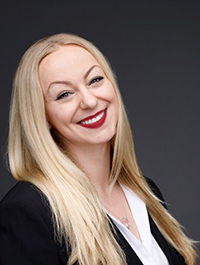
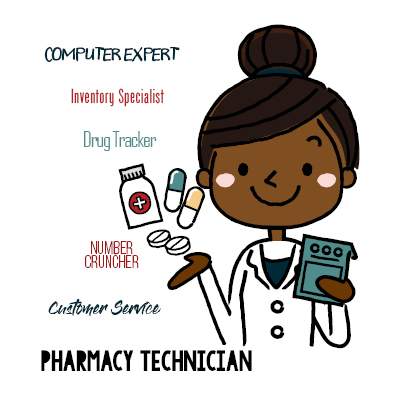
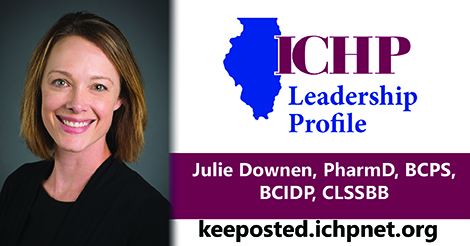
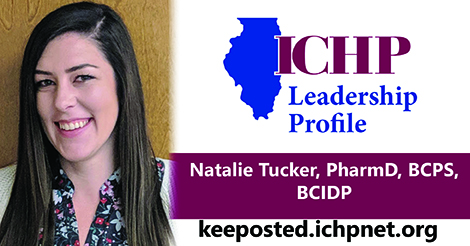

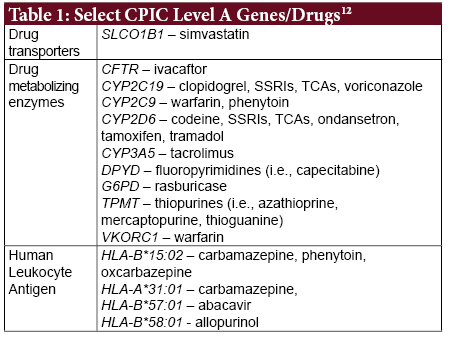


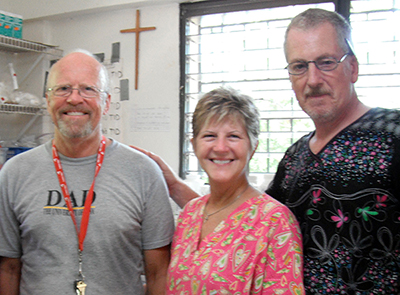
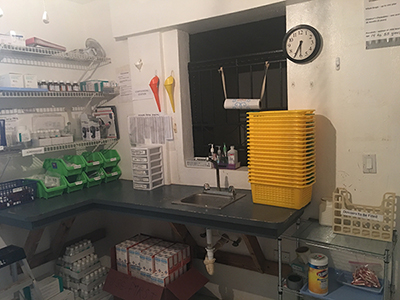
 - RESIZE FOR WEB.jpg)
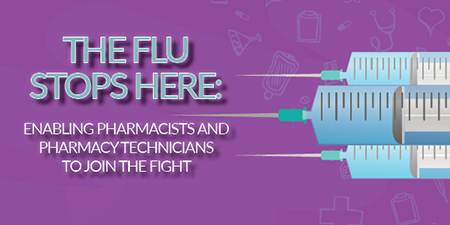

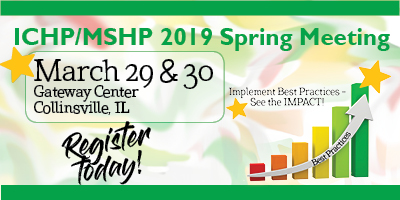
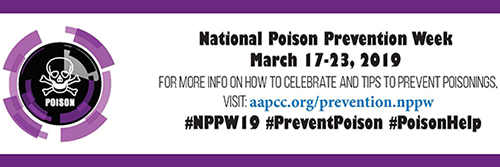
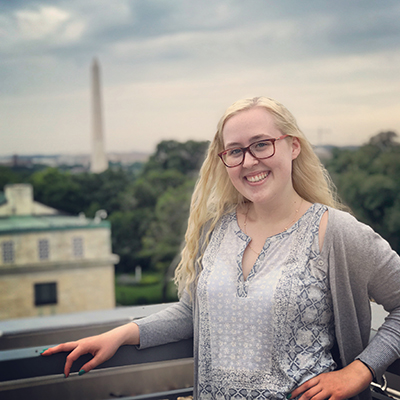
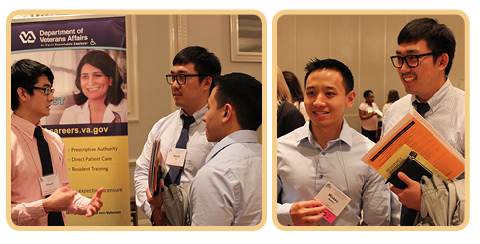
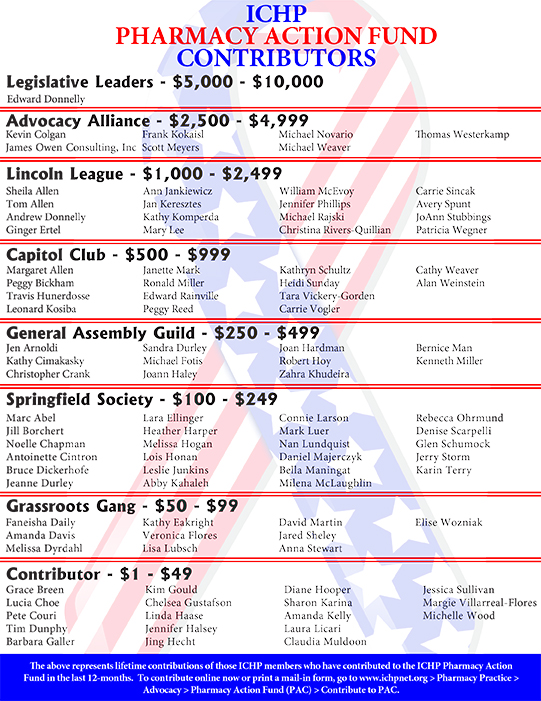
120x120.jpg)
